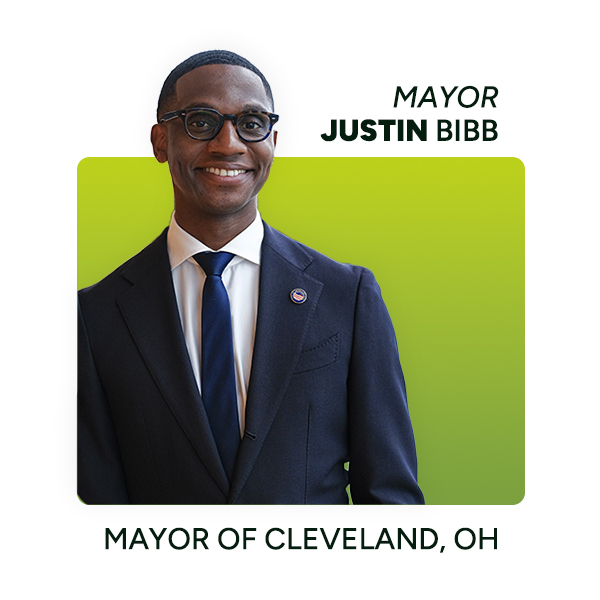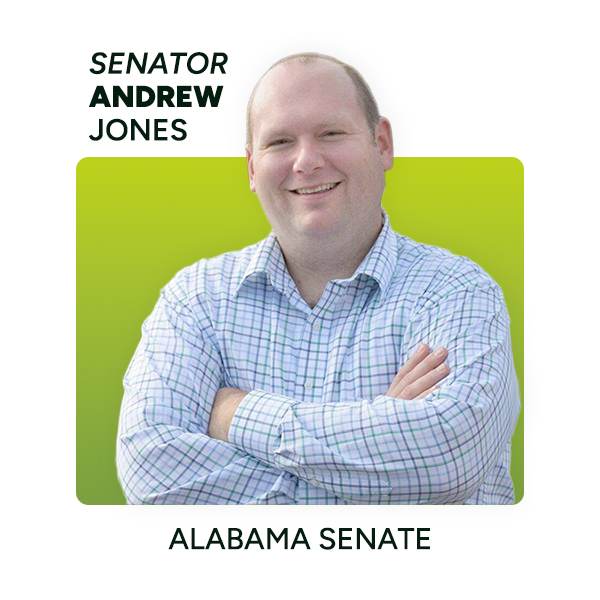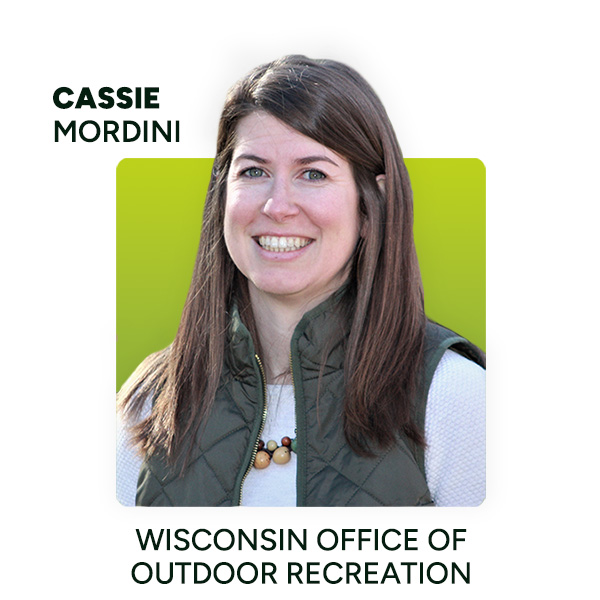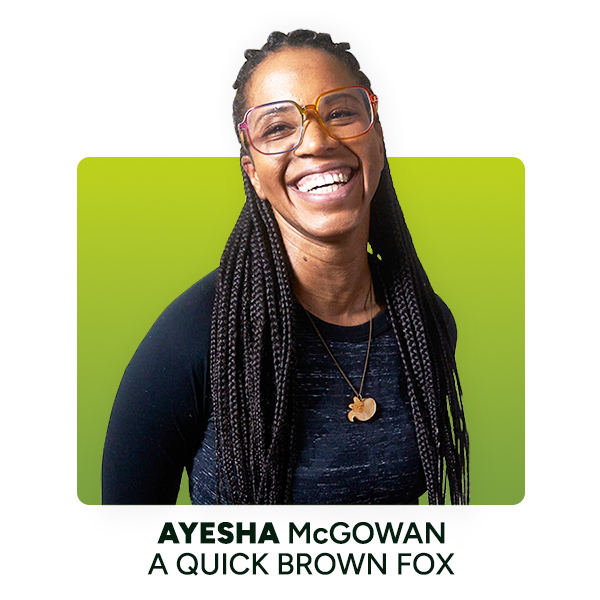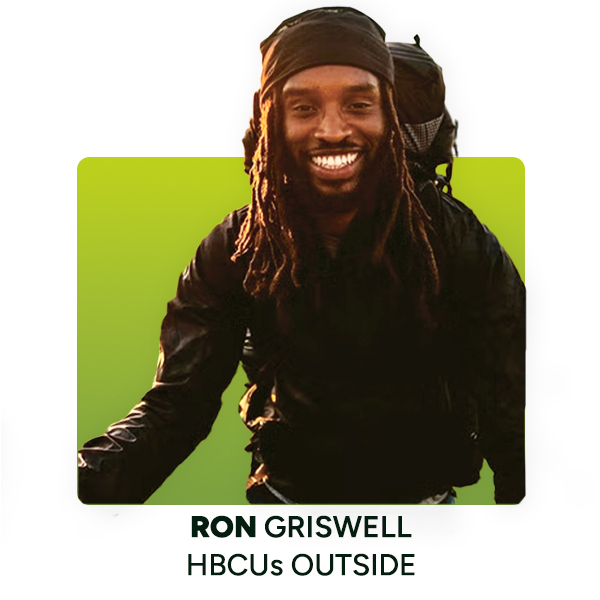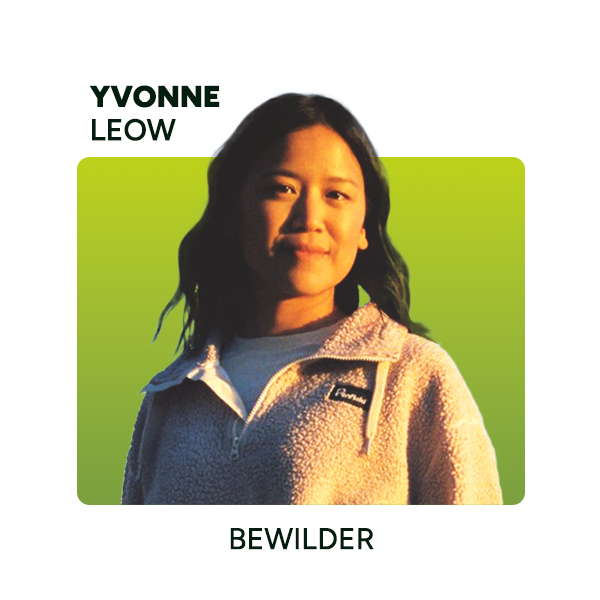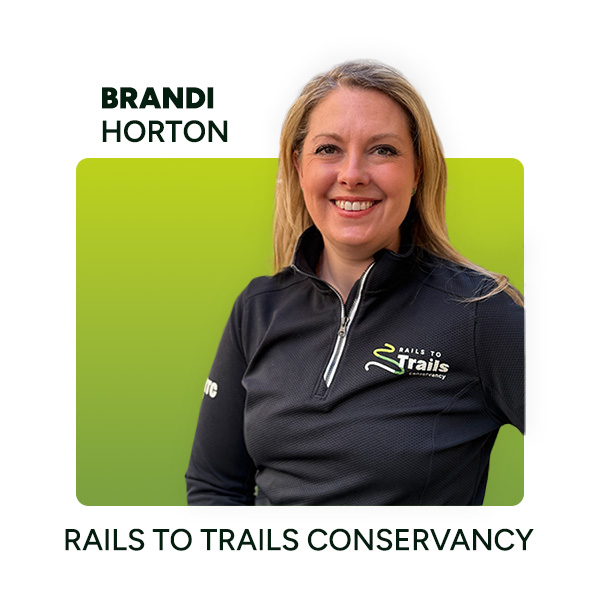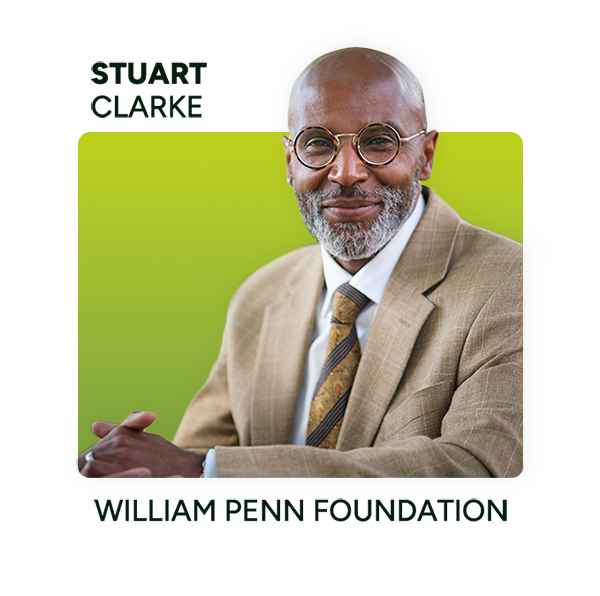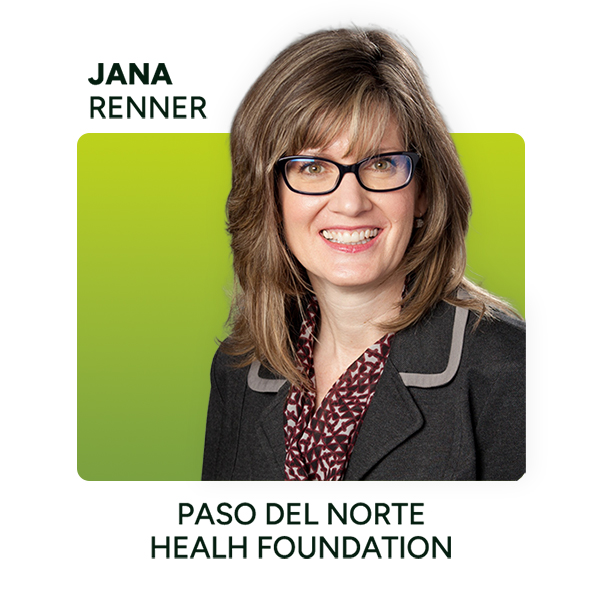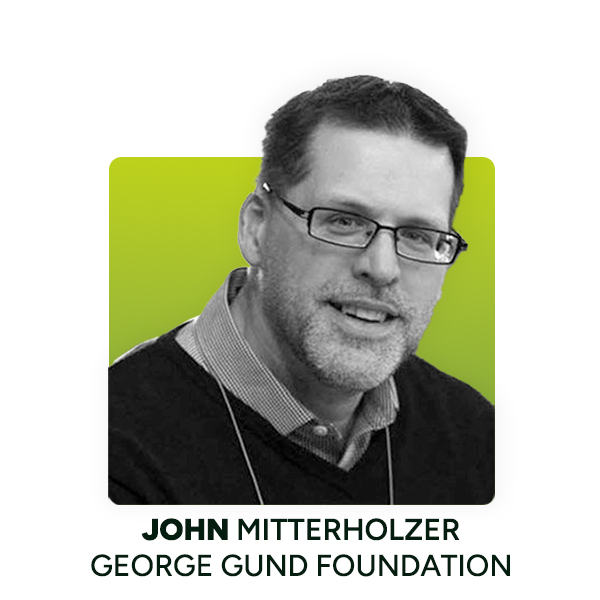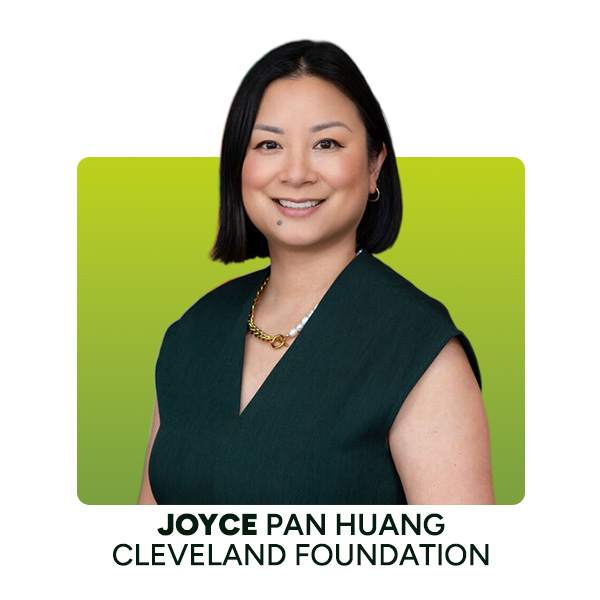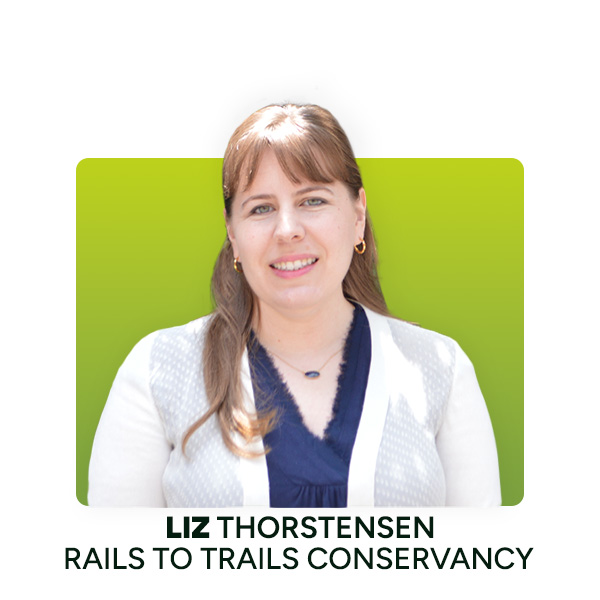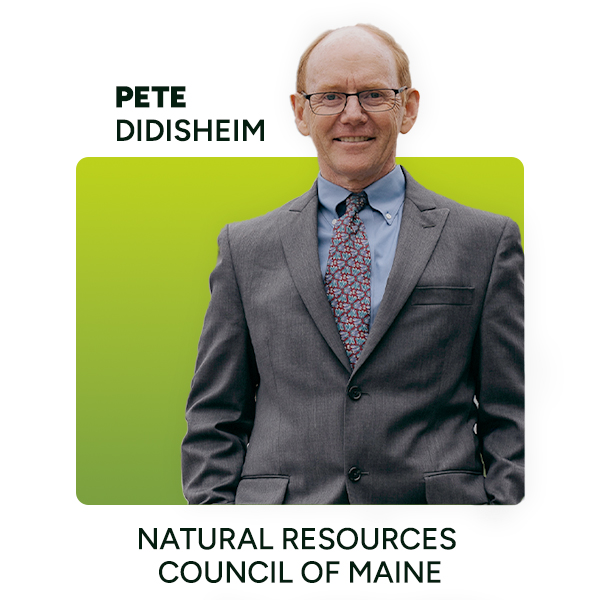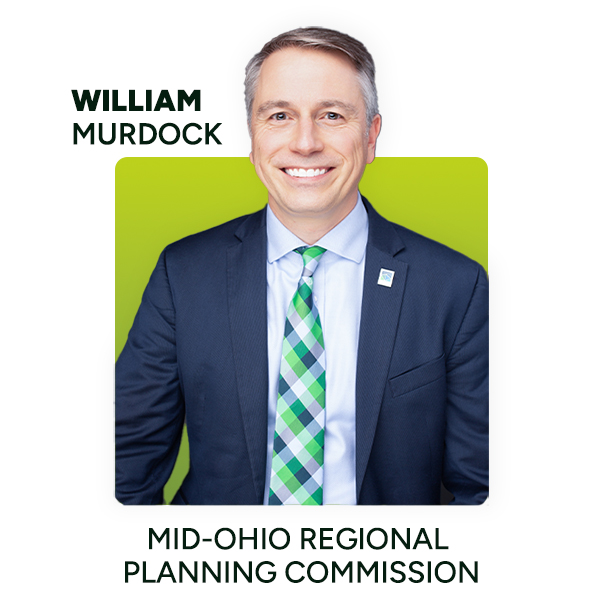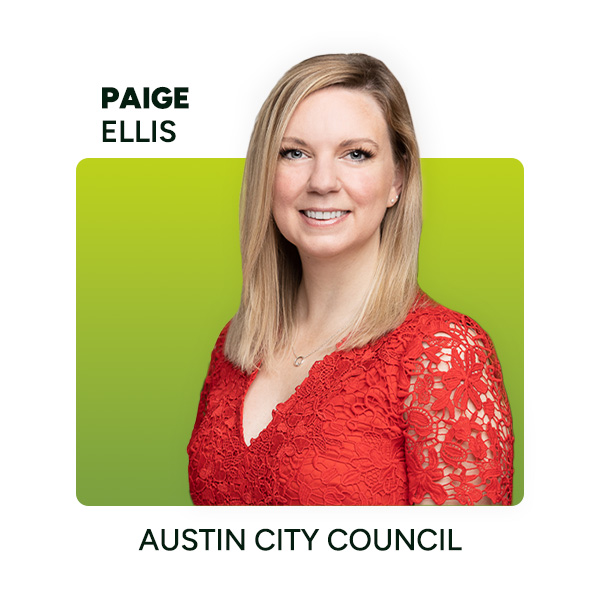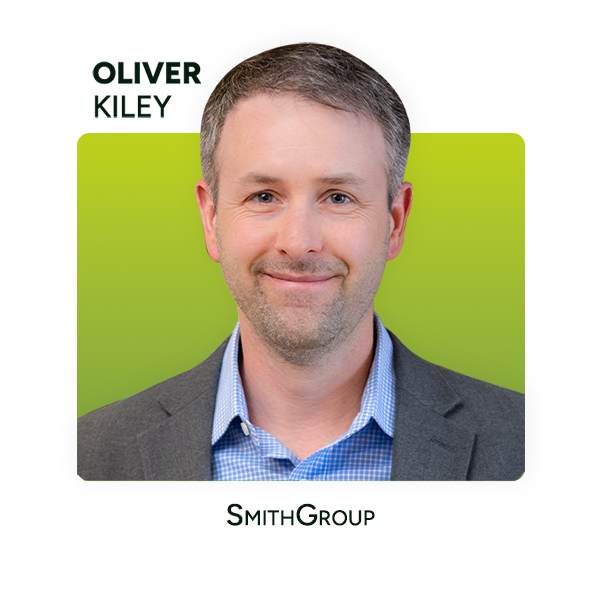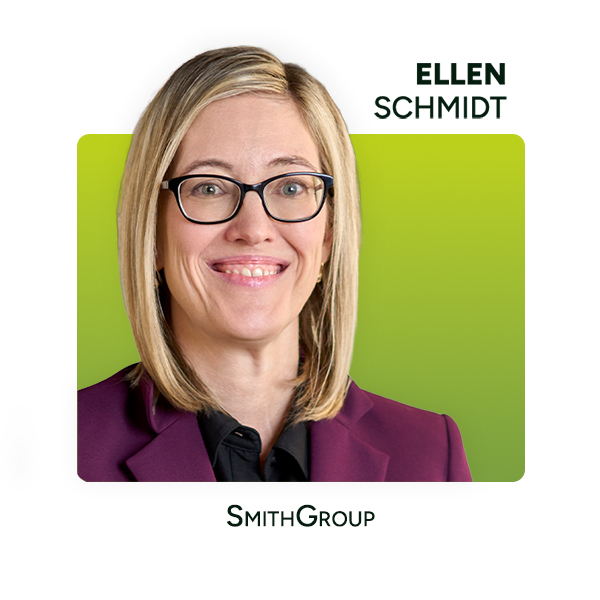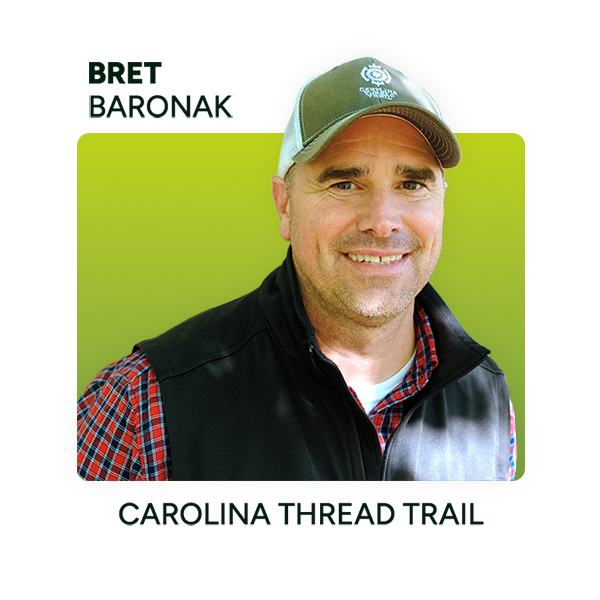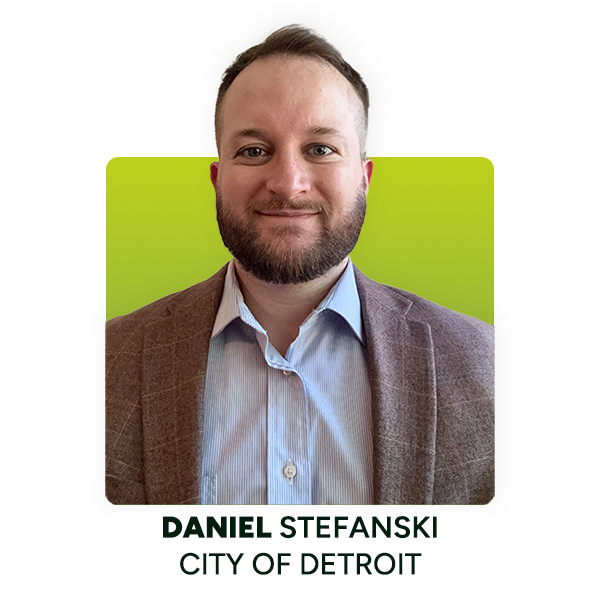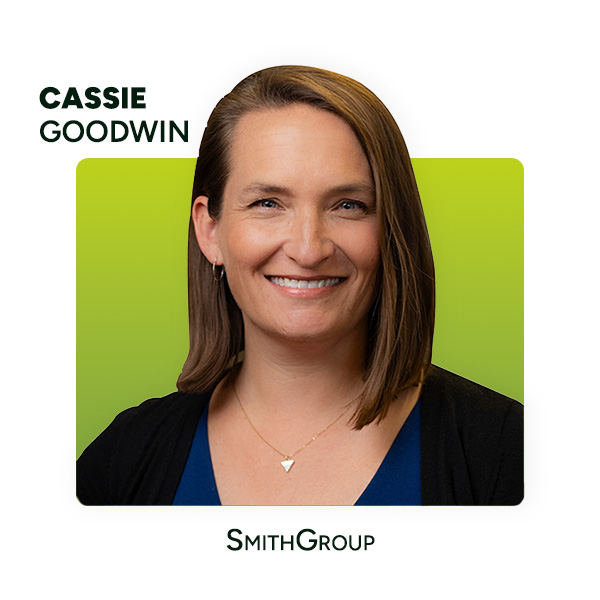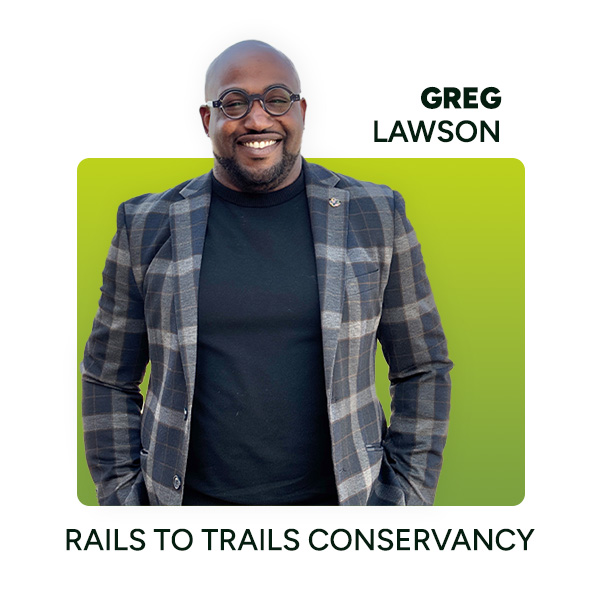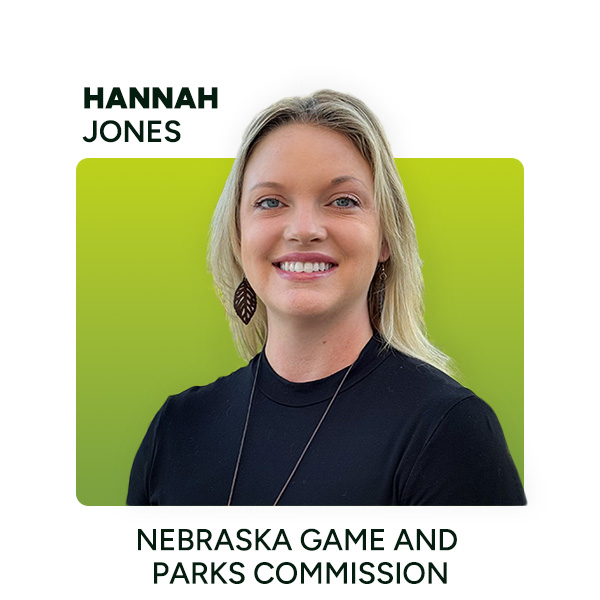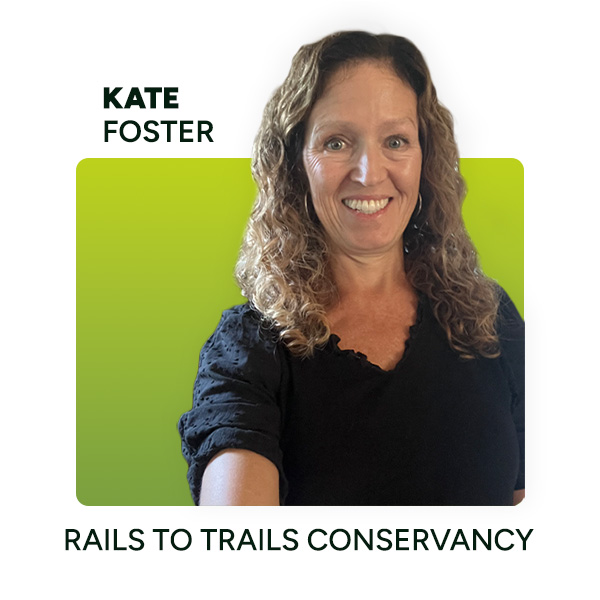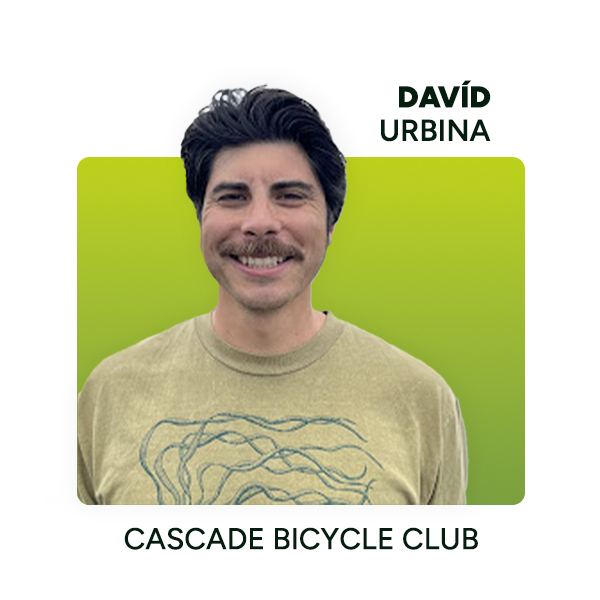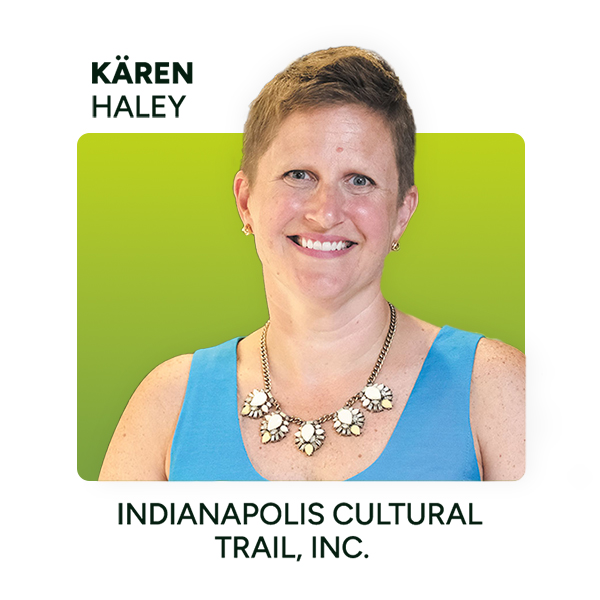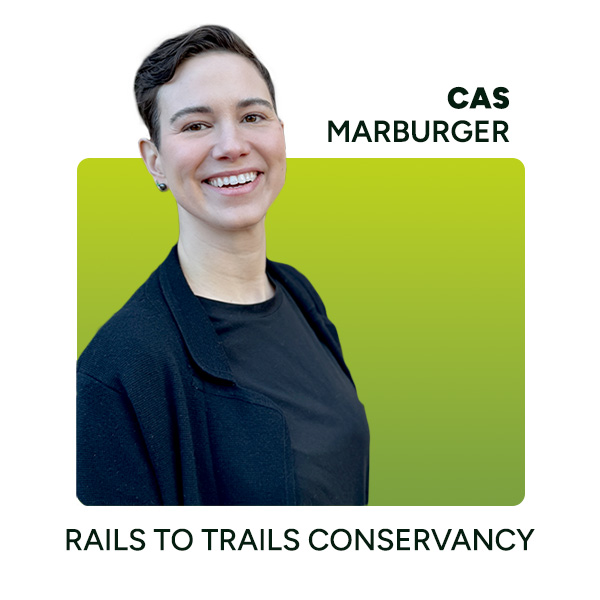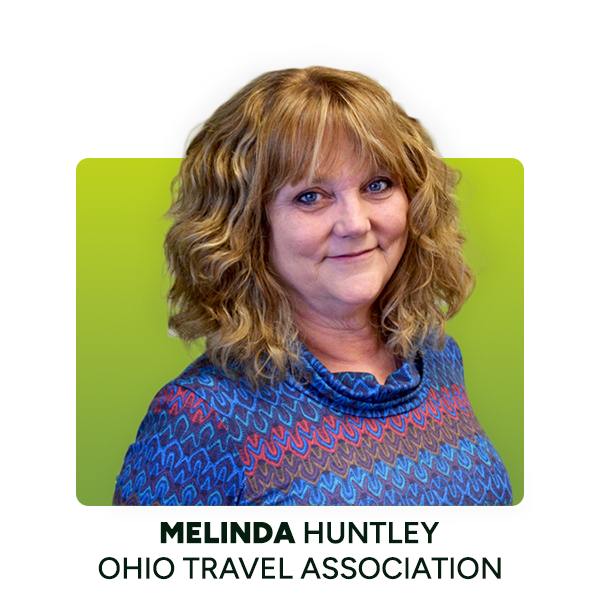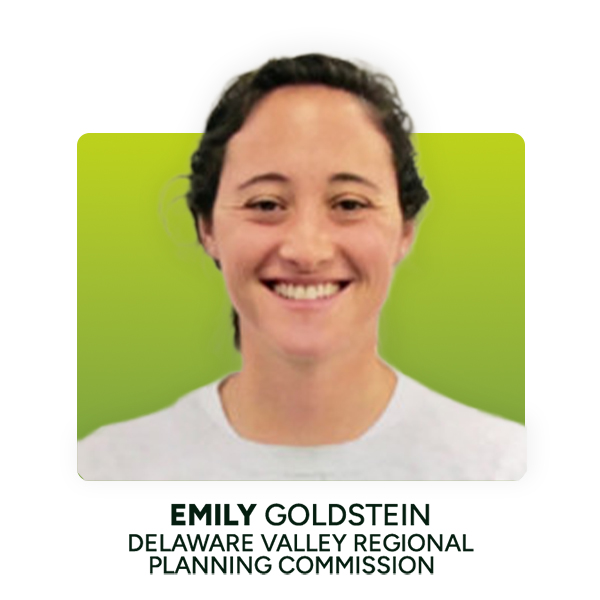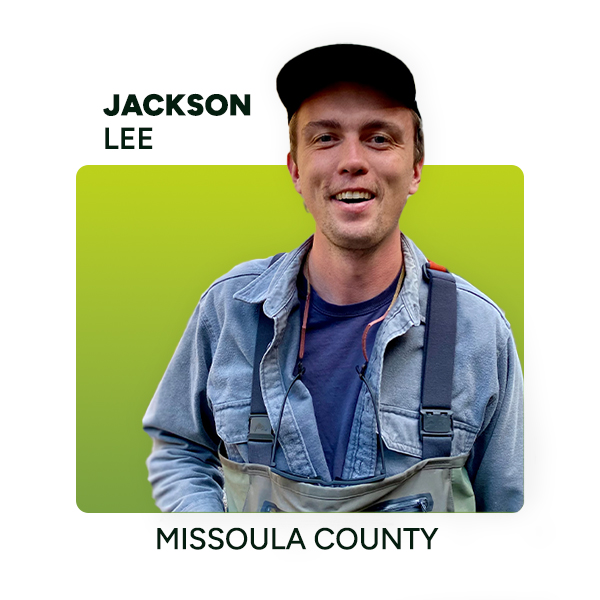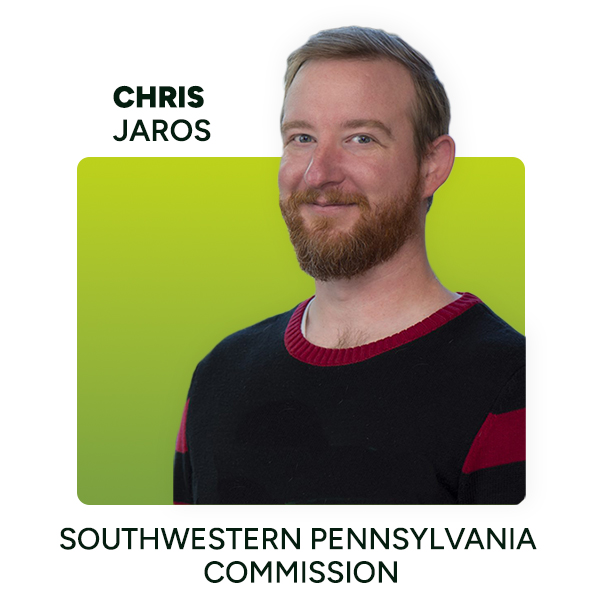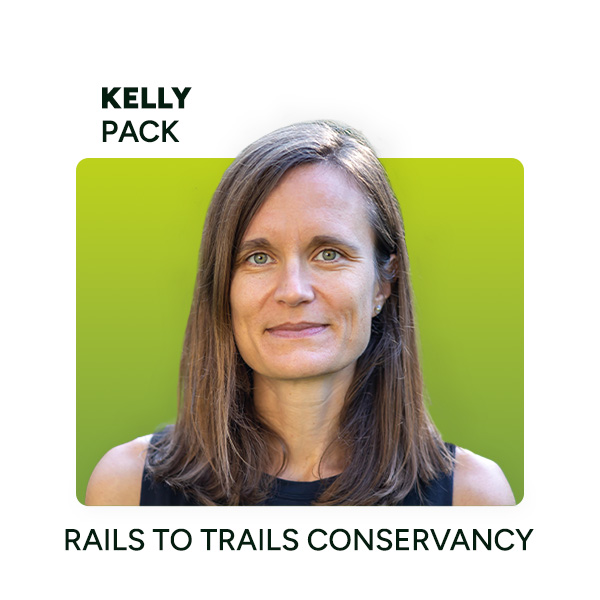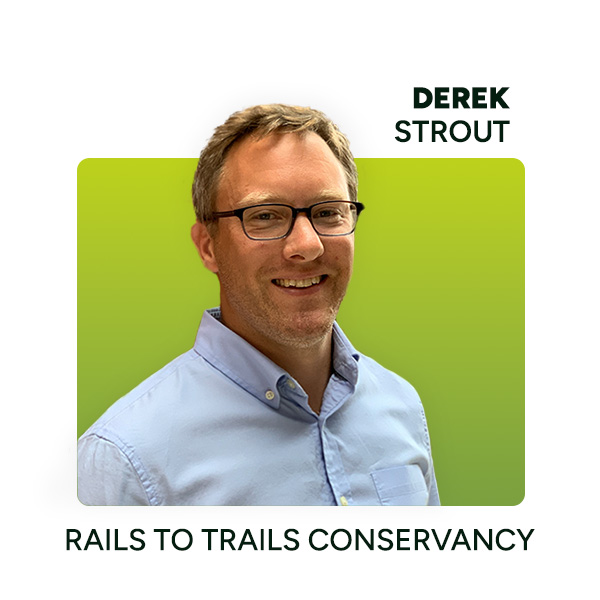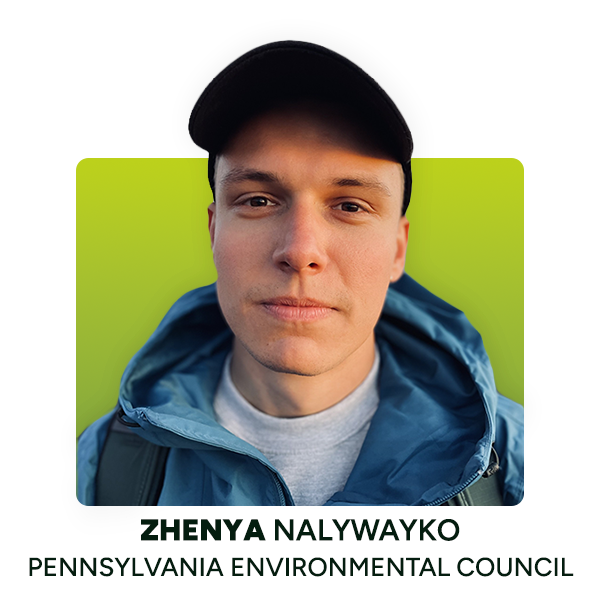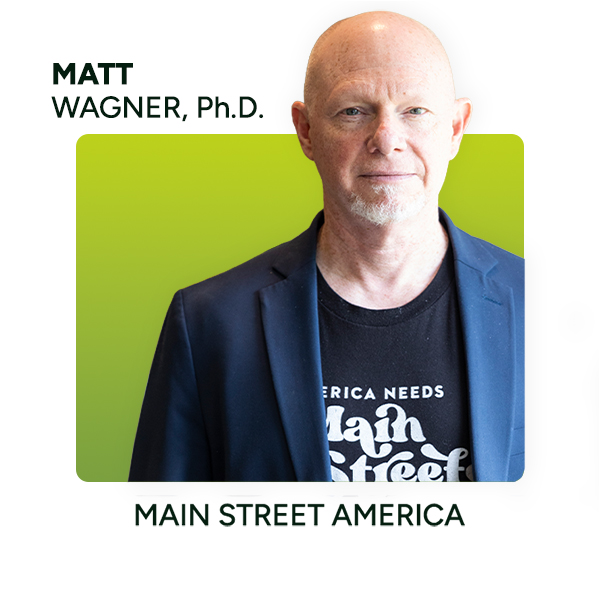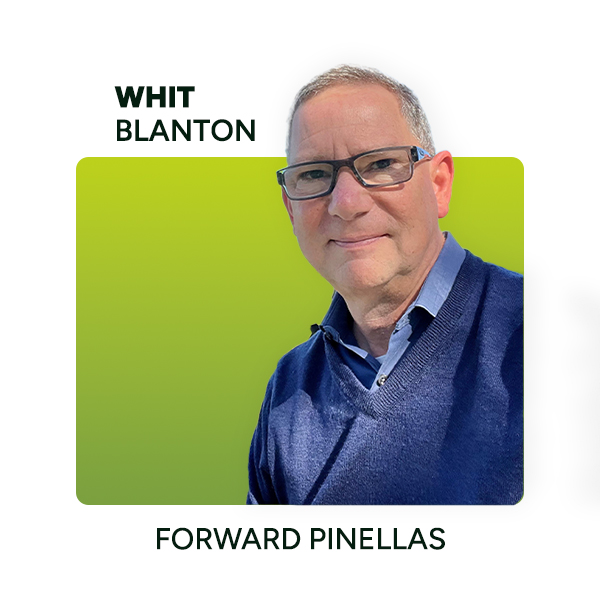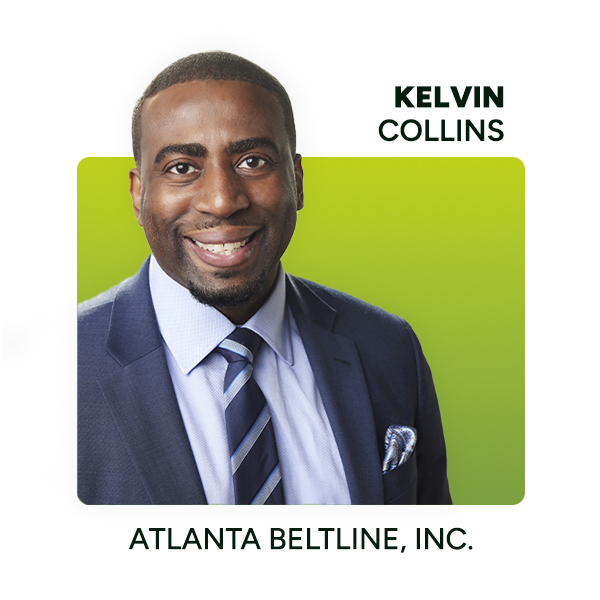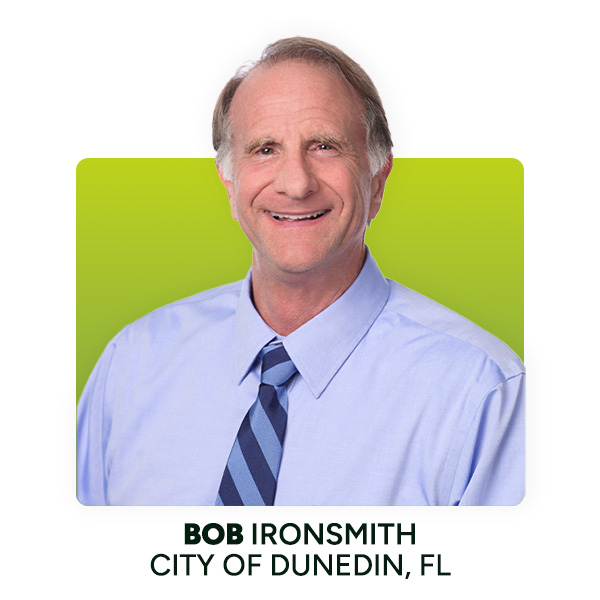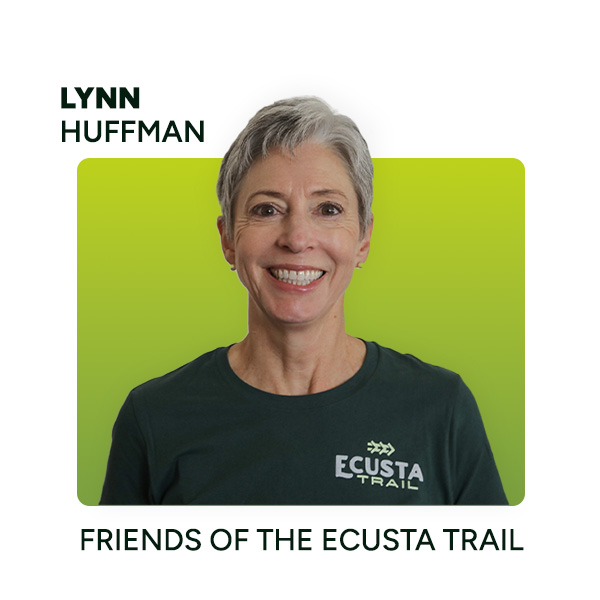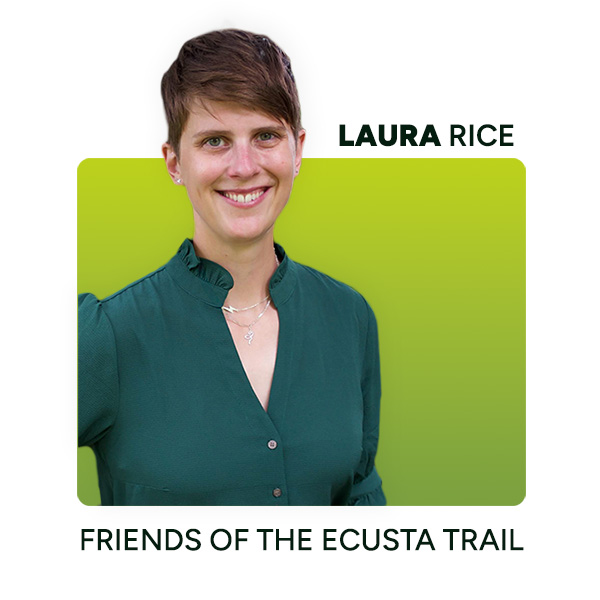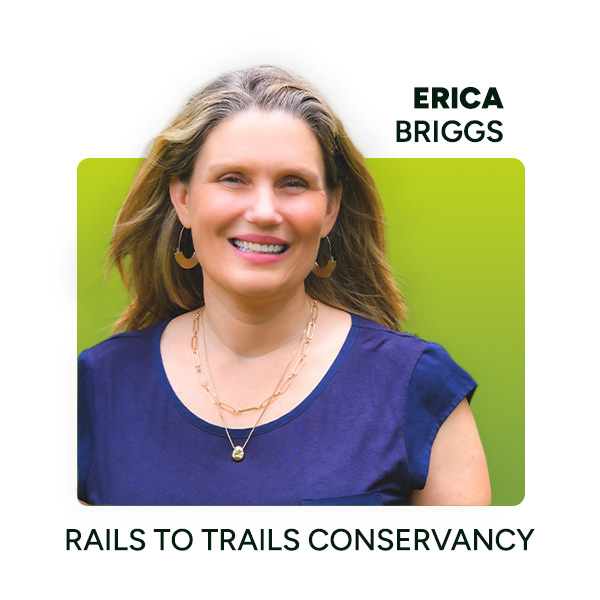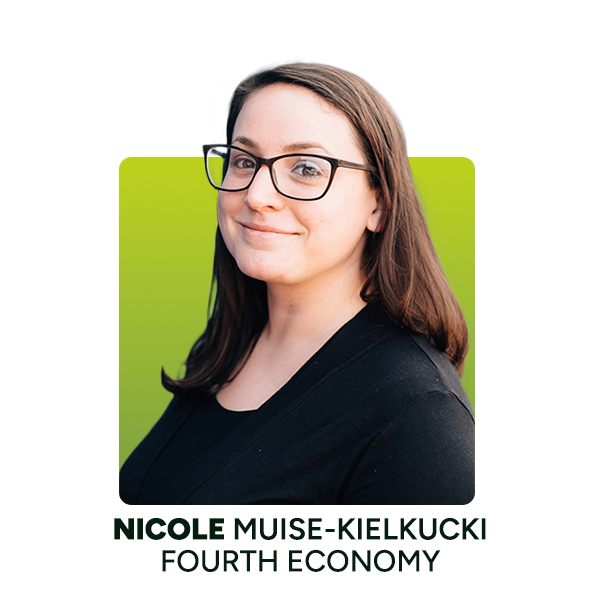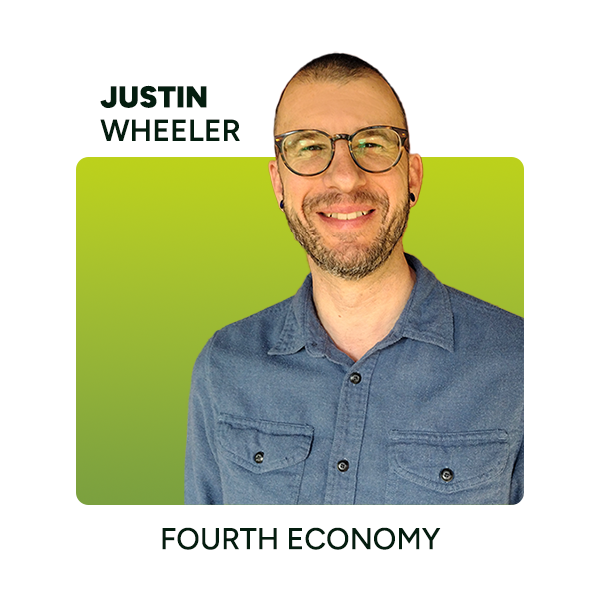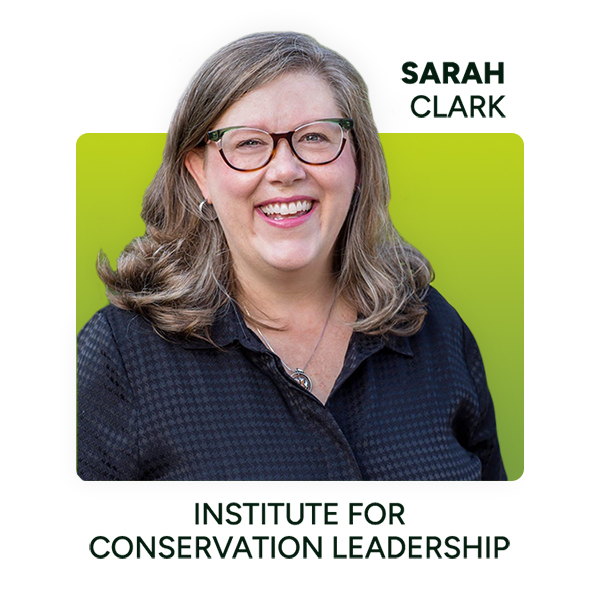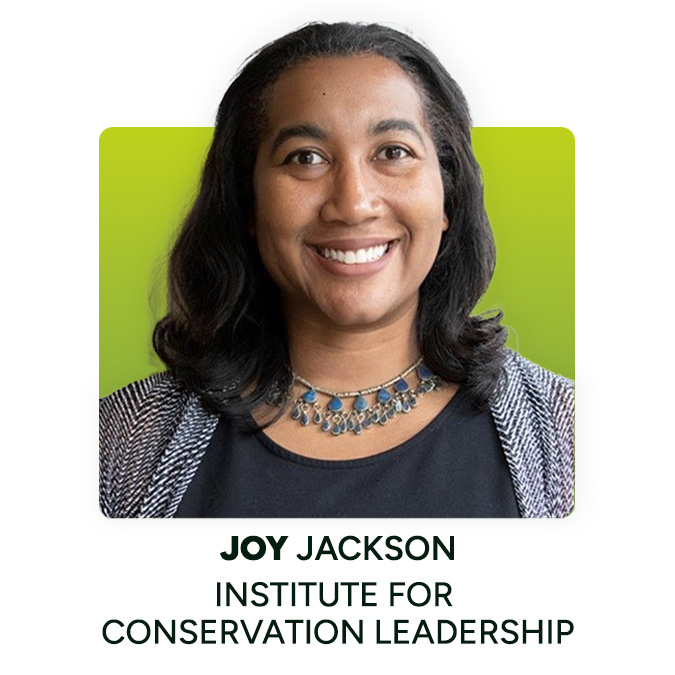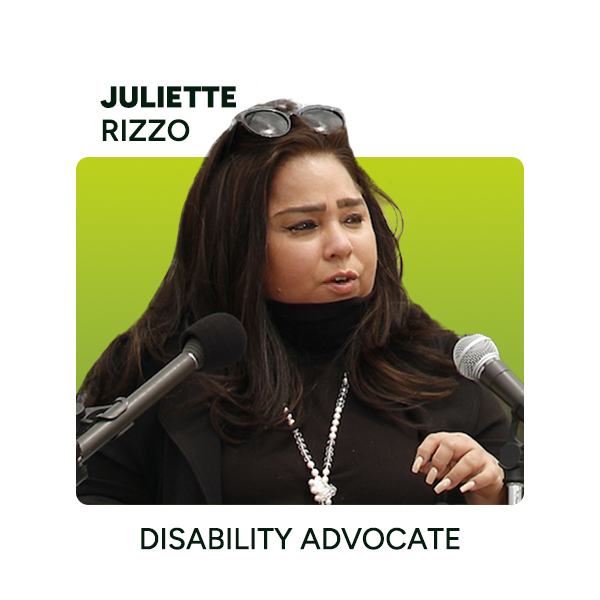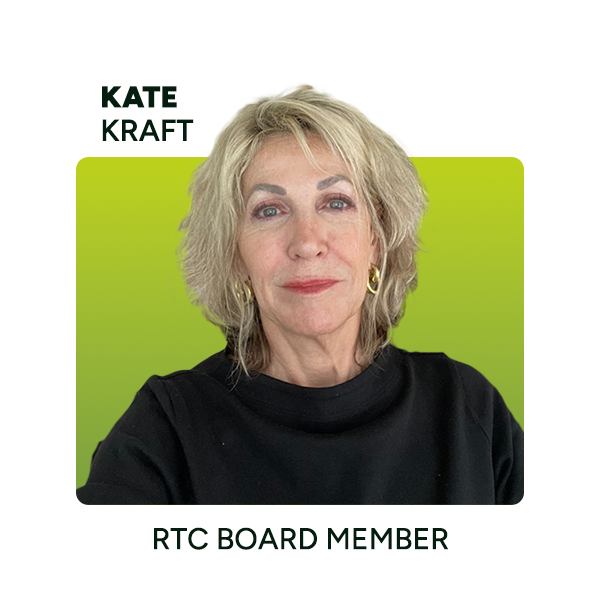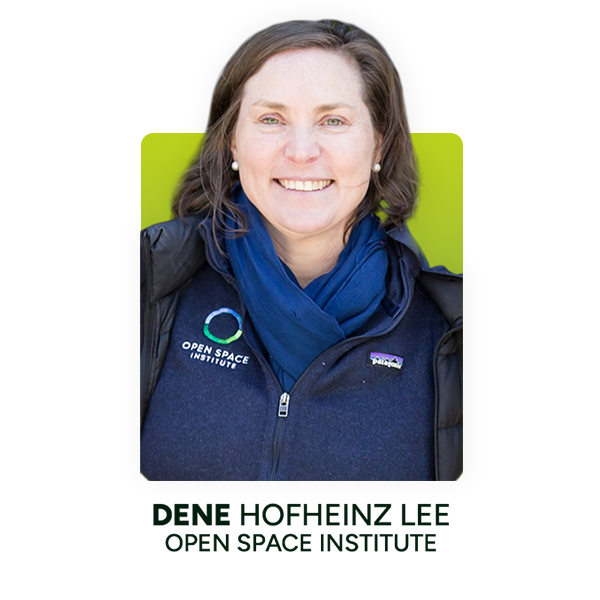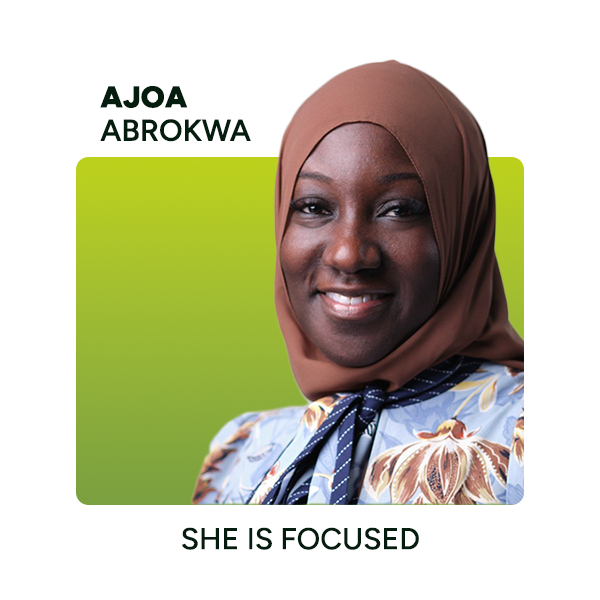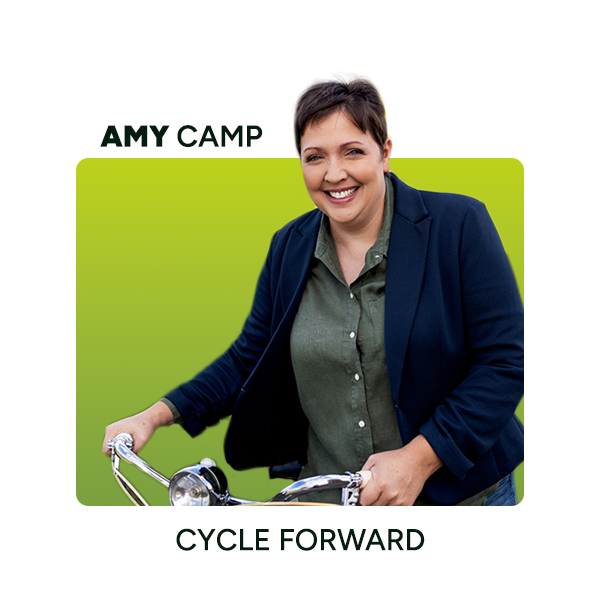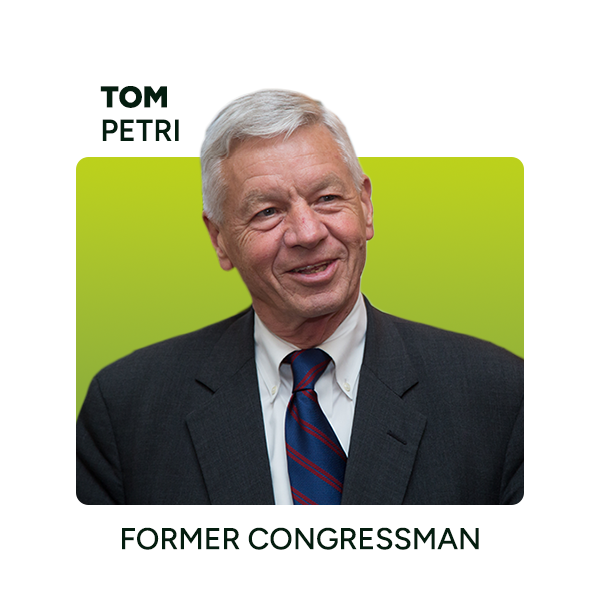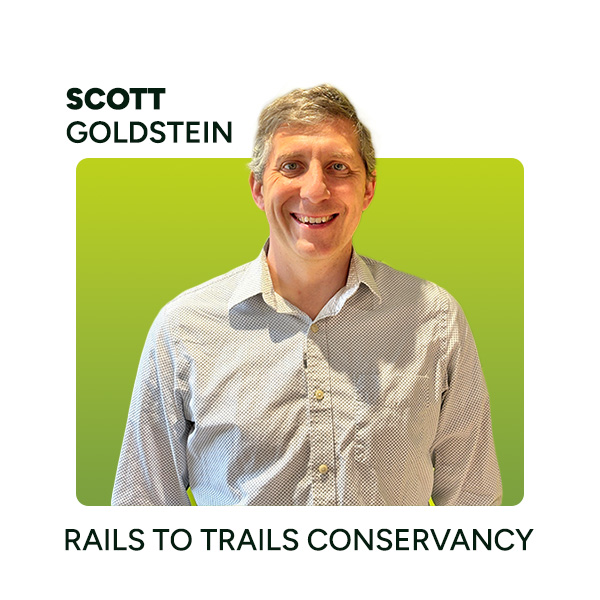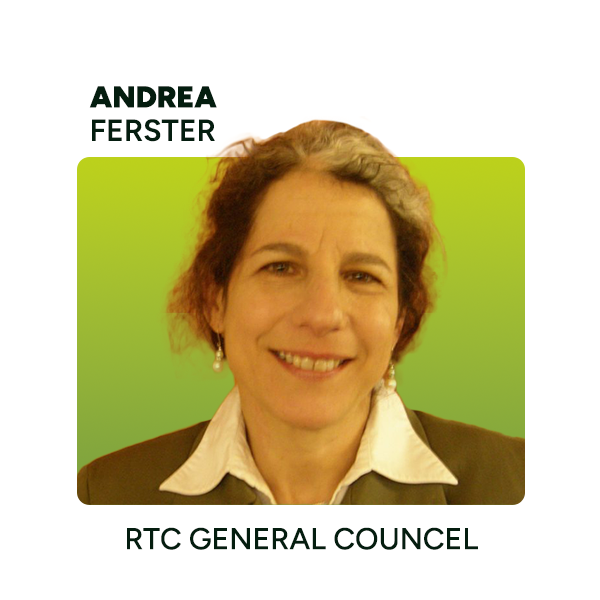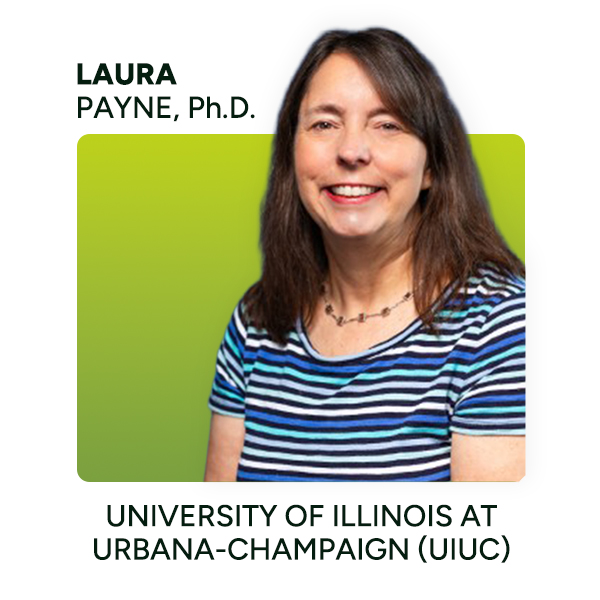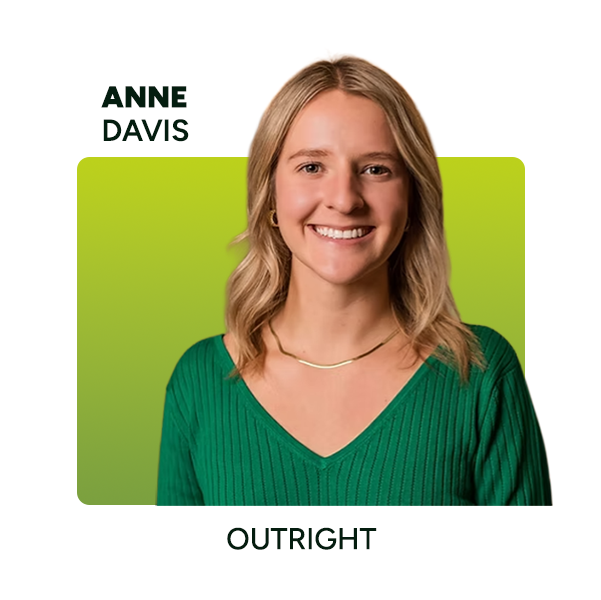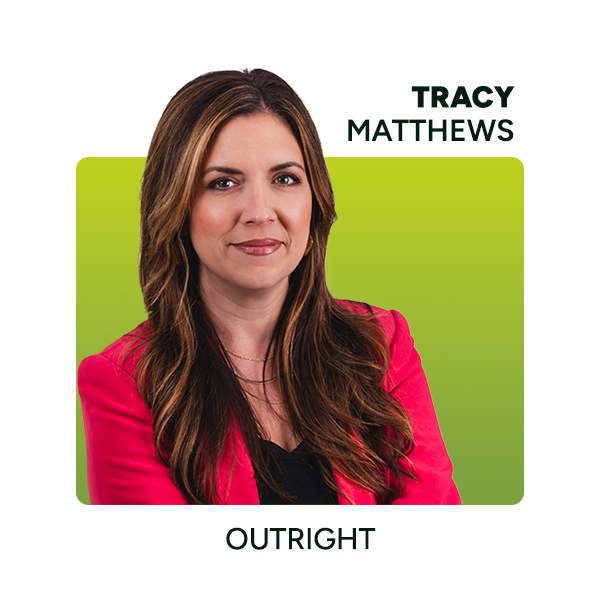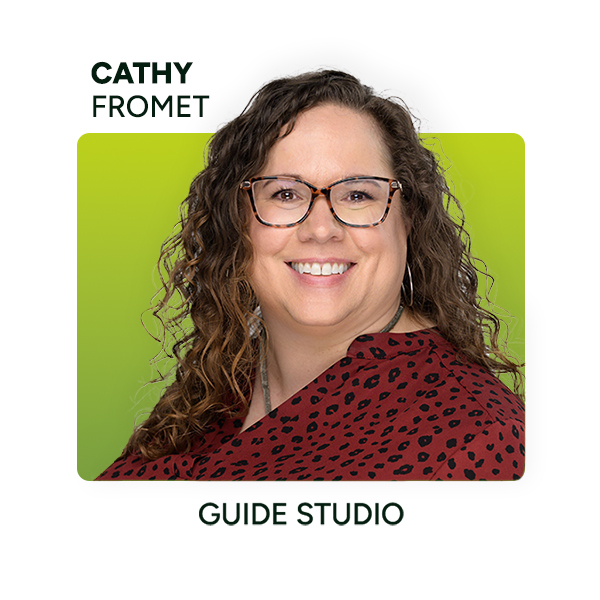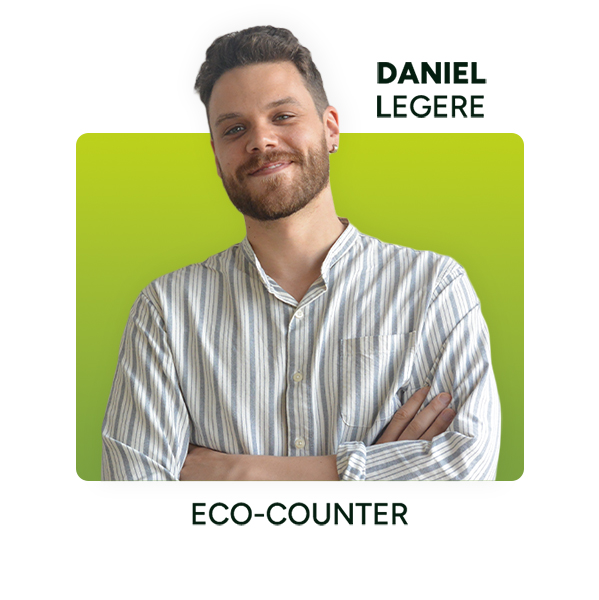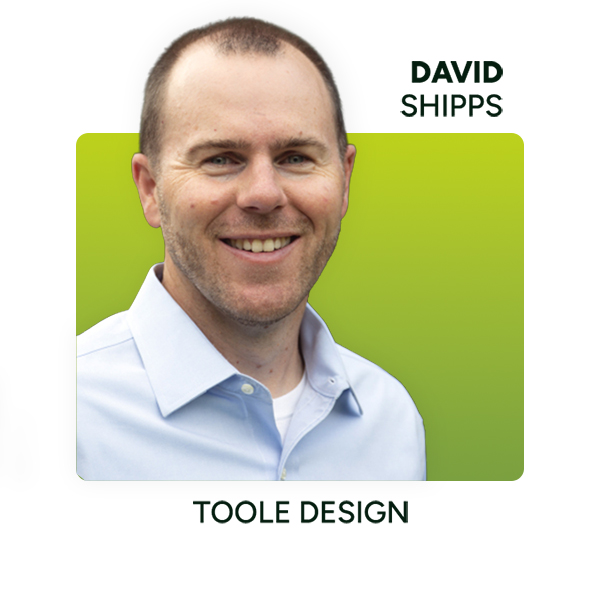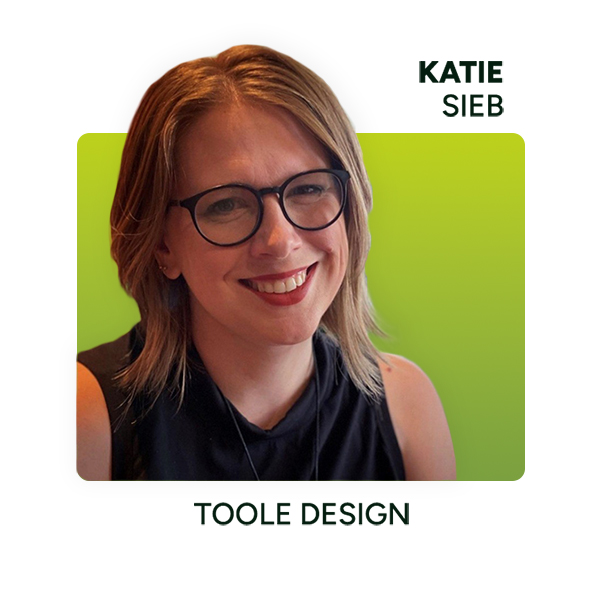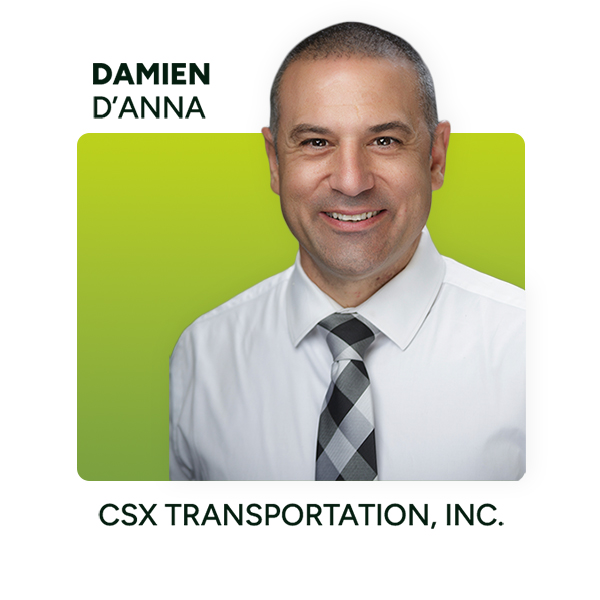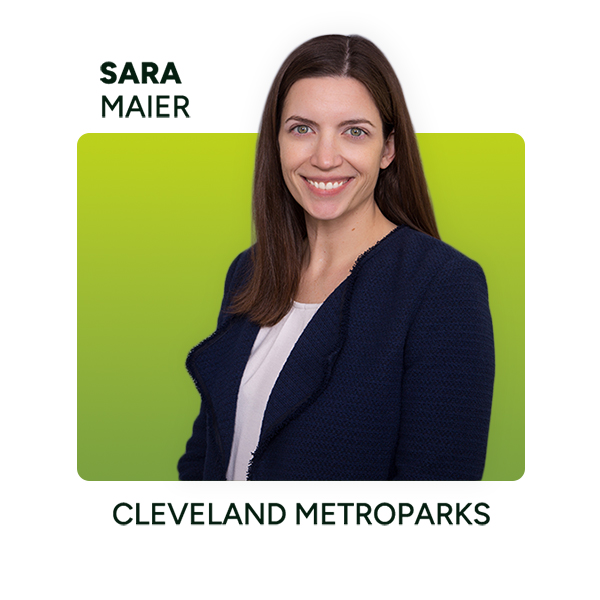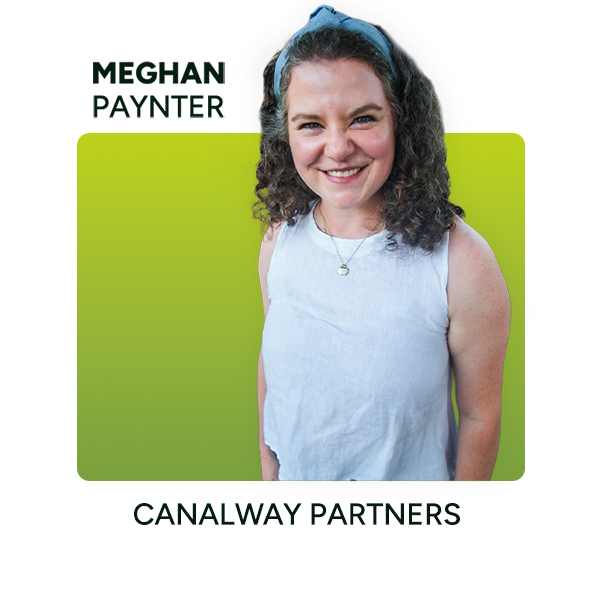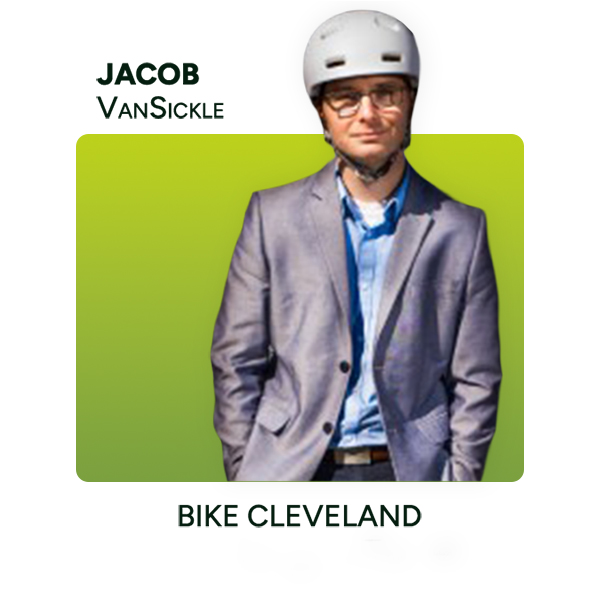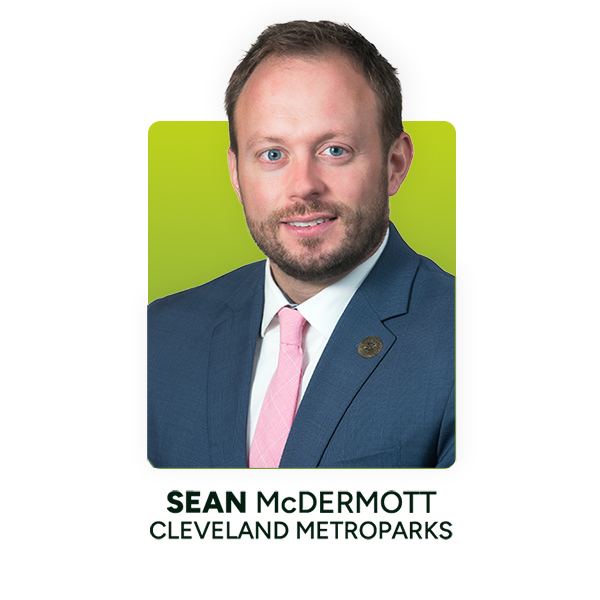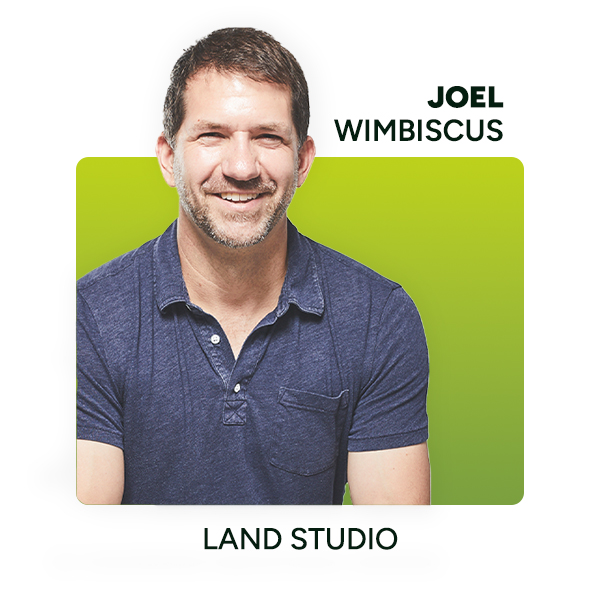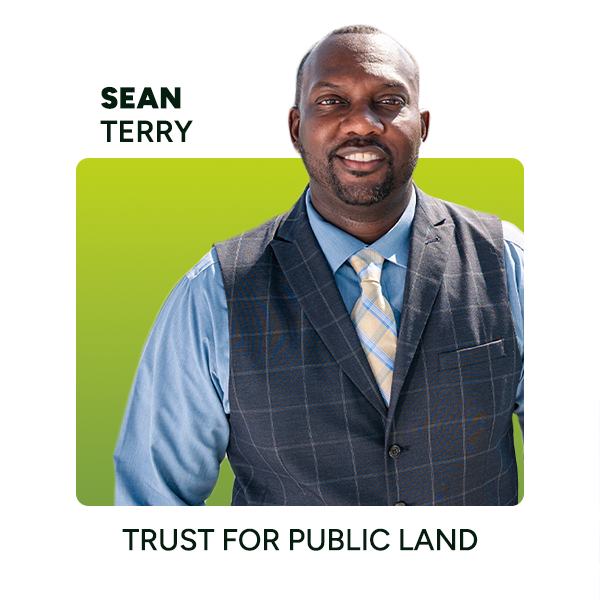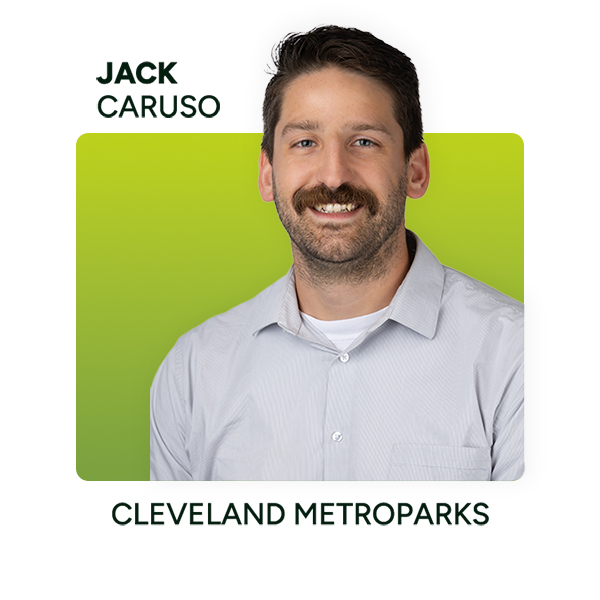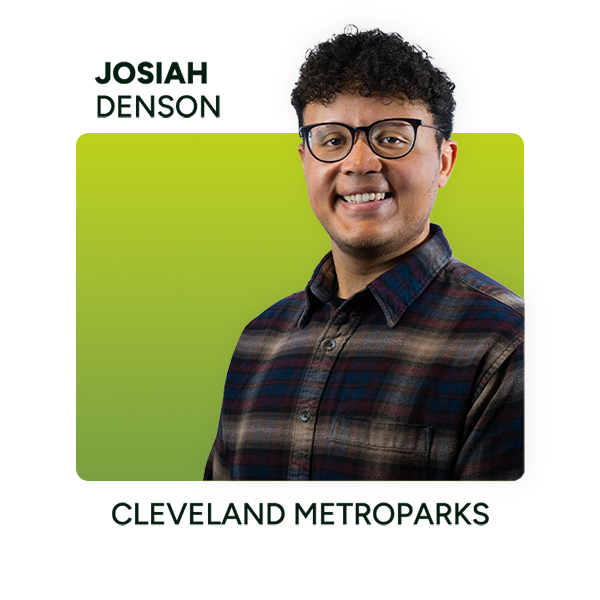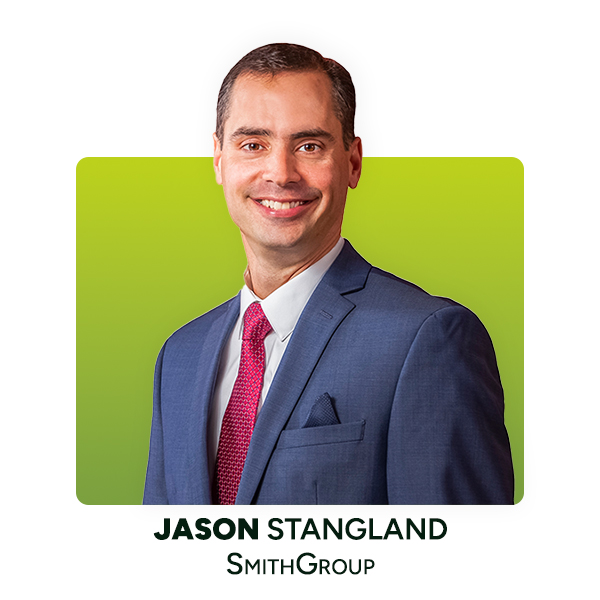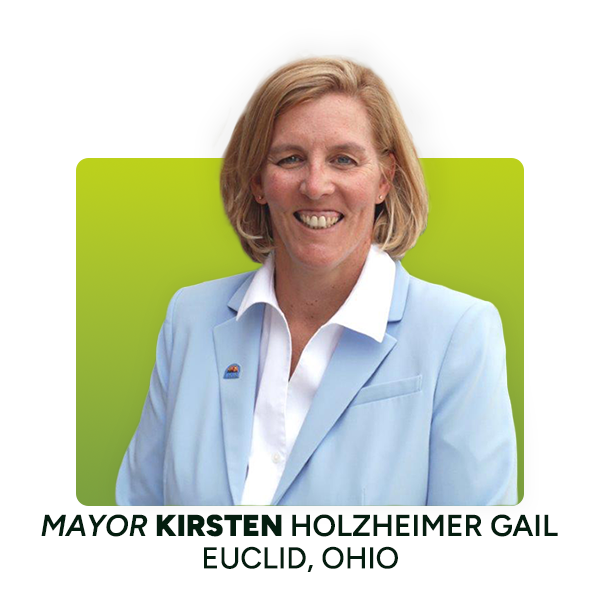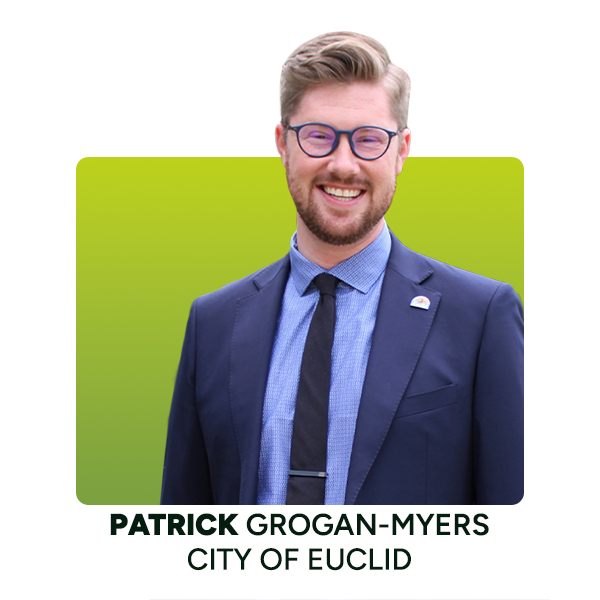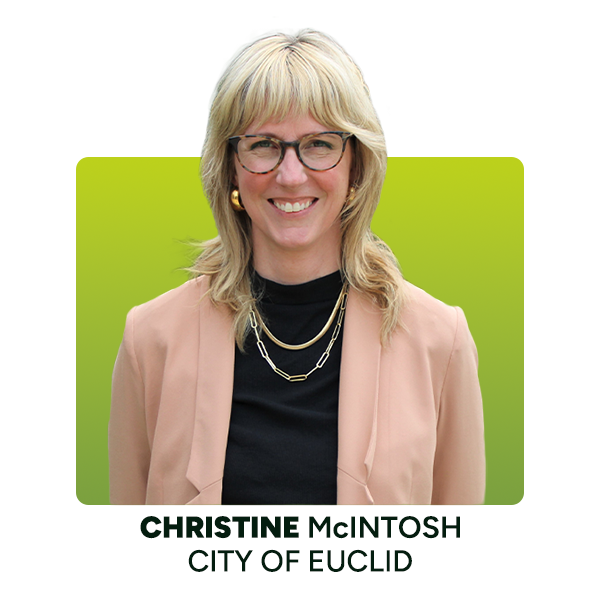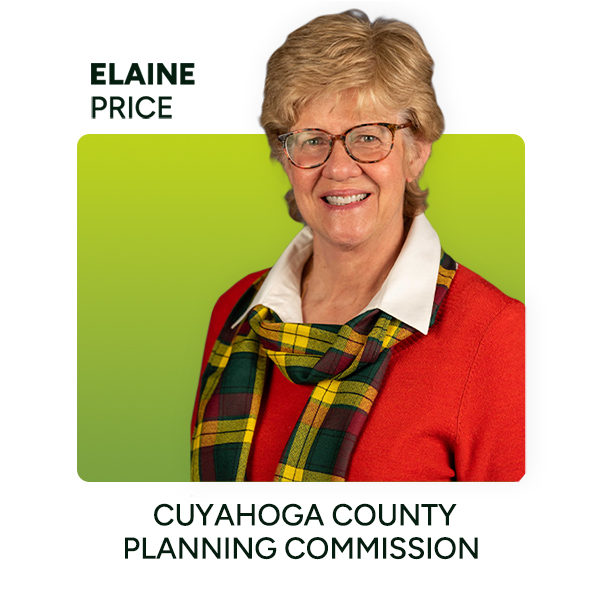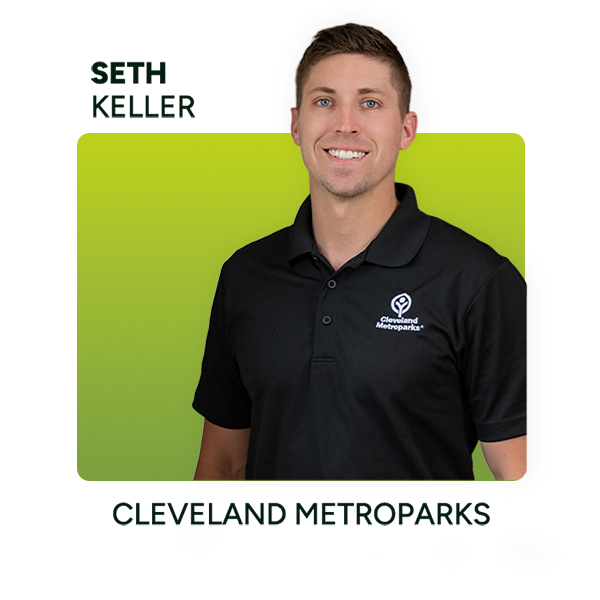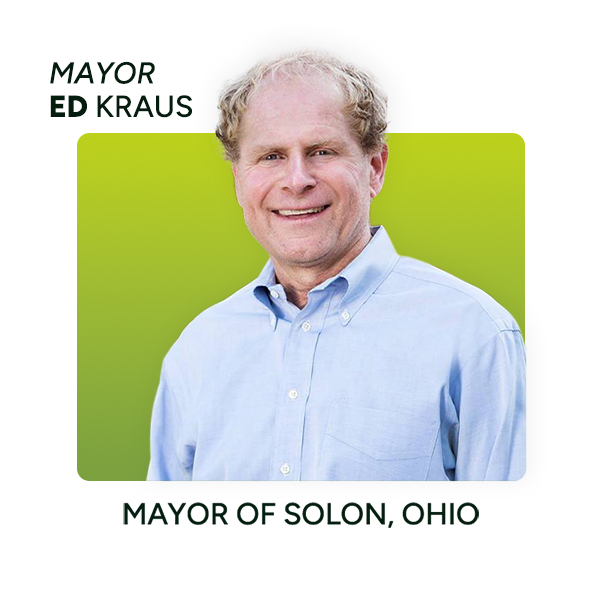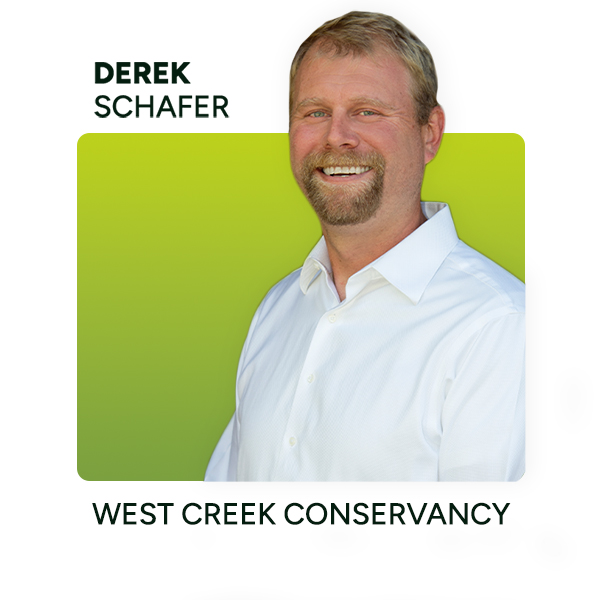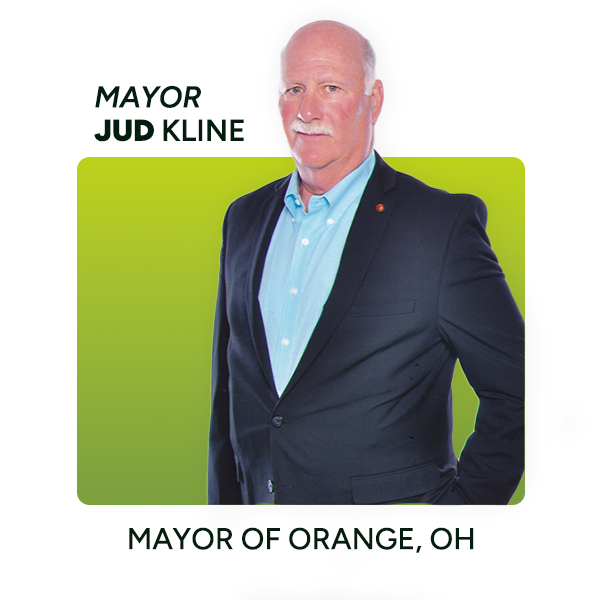TrailNation Summit Sessions
Ohio’s Cleveland Foundation Centennial Lake Link Trail | Photo by Jason Cohn
Keynote & Plenary | Master Classes | World Cafe | Tours | Cohorts | Speakers
The TrailNation Summit is a unique event rooted in deep, hands-on learning, creating an experience where everyone will gain the skills, relationships and action plans they need to put their trail network vision on the fast track.
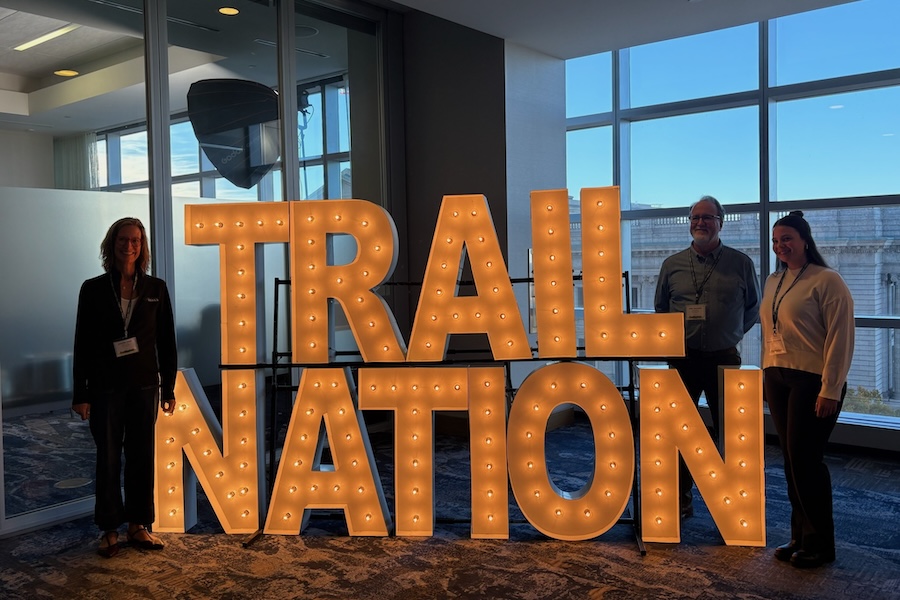
From keynotes that will tackle the challenge and opportunity of this moment to immersive master classes and mobile workshops that unpack the tools, tactics and action plans you need to move forward, each moment of the TrailNation Summit is designed to empower participants to lead their trail network project into the future. At the conference, you’ll experience …
- Immersive master classes and mobile workshops
- “World café” networking session designed for quick learning and relationship building with experts from across sectors
- First-ever trail networks “pitch fest” for people to hone their skills at packaging projects in ways that gain investment
- A chance to meet people from across the country who share your passion for making it safer and easier for everyone to walk, bike and be active where they live.
Keynote and Plenary Sessions
Tuesday, Oct. 28 from 8:30 A.M. — 9:50 A.M.
From Amenities to Essentials: The Case for Trails and Active Transportation
Nationwide, communities, states and regions are banding together to build out their visions for trail networks. In many places—rural and urban, red and blue—local and state leaders are applying their influence to accelerate the pace of progress. We’ll hear firsthand from those who have been at the helm of this progress and why they believe that trail and active transportation networks are essential to the well-being of the places and the people they serve.
1.0 AICP CM credits available.
Tuesday, Oct. 28 from 12:30 P.M. — 1:30 P.M.
Joy Transforms
In a time of extreme polarization, studies show that America is experiencing a loneliness epidemic. In many communities, trail networks are spaces that spark joy and create a shared community identity, unlocking the key ingredients of place-based transformation that fuels economic growth and quality of life. Together, we’ll explore what it means to leverage joy for impact, building support and inspiring the action needed to make meaningful progress for the nation’s trail networks.
1.0 AICP CM credits available.
Wednesday, Oct. 29 from 8:00 A.M. — 8:50 A.M.
Philanthropy’s Role in Powering Community Growth Through Trails
As federal funding priorities shift, communities around the country are looking for innovative ways to meet the needs of their communities. Alongside a panel of philanthropic leaders, we’ll explore how to move beyond traditional funding models to address the challenges of working across municipal lines, sectors, and timelines. We’ll explore how philanthropy can, and has played a catalytic role in these efforts, not just as funders but as strategic partners in long-term, systems-level solutions.
1.0 AICP CM credits available.
Wednesday, Oct. 29 from 12:30 P.M. — 1:30 P.M.
Funding Trail Investment in a Shifting Political Landscape
After several years of unprecedented federal investment in trails, walking and biking, our movement is experiencing whiplash as prior grants have been altered or revoked. Resilient advocates are diversifying funding sources and pursuing innovative state and local options to continue to connect trail networks. This session will explore successful ballot measures in urban localities and a rural state that are accelerating progress.
1.0 AICP CM credits available.
Master Classes
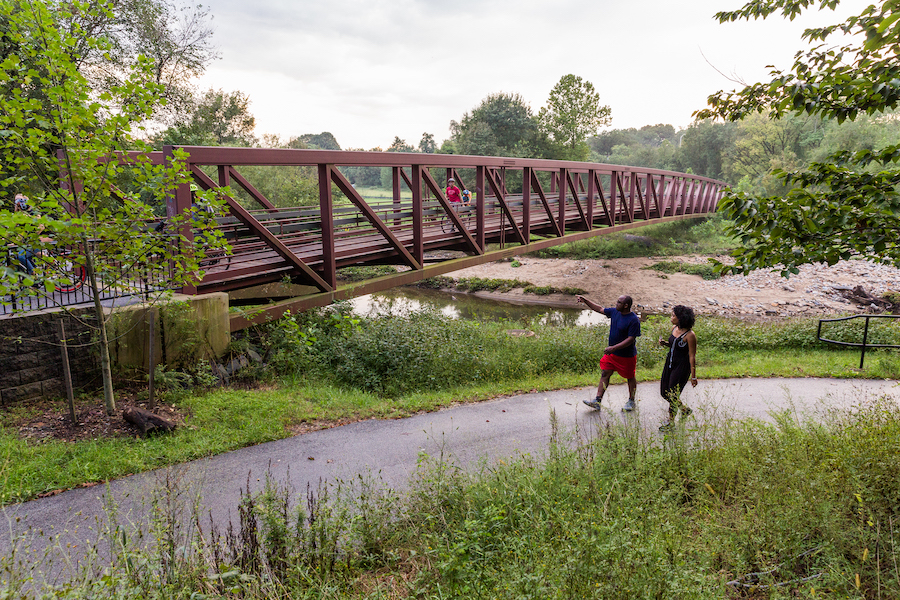
These immersive learning sessions will feature hands-on learning with leaders in the field, alongside case studies of sustainable solutions to funding, advocacy and trail development challenges. Rural, suburban and urban cohort groups will move through the sessions as a team, walking away with the specific localized skills and new perspectives to empower local action.
Overcoming Obstacles to Trail Network Implementation
Across the country, communities face similar—yet unique—challenges as they seek to build out their trail networks. Whether we’re working in rural, suburban or urban communities, building public support and political will are essential to success. This session will focus on a range of issues unique to the geographies where we work, from community connection to health and economic revitalization, landowner opposition and rights of way, addressing mobility needs and strategies for integrating trails with existing infrastructure and transit.
1.5 AICP CM credits available.
Engaging End Users: Marketing, Messaging & Trail Activation
Regardless of the community you represent, outreach and engagement are essential to the success of your trail network. This session dives into approaches for activating your trail network through strategic outreach, inclusive messaging, media partnerships, and community-centered programming that turns occasional users into loyal stewards.
1.5 AICP CM credits available.
Mapping Trail Networks for Implementation & Advocacy
Mapping is a key step in bringing the vision of a trail network to life—essential to the implementation of and advocacy for connected trail networks nationwide. Together, we’ll explore effective mapping strategies that seek to build community knowledge of the trail system, approaches to developing comprehensive approaches for corridor analysis, and the power of collaboration across stakeholder groups.
1.5 AICP CM credits available.
Trails as Economic Engines
Increasing walkability and bikeability is a proven method for regional economic growth. Together, we’ll explore strategies for leveraging trail networks to support small businesses, increase tourism, attract talent, and drive local investment—complete with data insights and messaging tools to help advocates speak to the economic value of trails in any region
1.5 AICP CM credits available.
World Café
Big Ideas. Fast Connections. Real Solutions.
This fast-paced, highly interactive session is designed to maximize learning and connections. Participants will rotate through expert-led small-group conversations on the tools and tactics shaping trail networks today—including spatial data, market analysis, trail-user data, community-first design, funding readiness, economic impact, and effective public engagement and messaging. The World Café model emphasizes actionable insights and hands-on advice tailored to real-world trail development challenges, providing new strategies, fresh ideas, and personal connections that are the seed for lasting partnerships.
Activating and Measuring the Economic Impact of Trails
Led by experts from Fourth Economy, this table will focus on how trails contribute to local and regional economies—and how to measure that impact effectively. Drawing from their work in economic development, planning, and strategy, Fourth Economy will provide guidance on how to position trail projects within a broader economic lens, use data to tell compelling stories, and build support from stakeholders and funders by demonstrating real economic returns.
Best Practices for Effective Coalition Building and Engagement
Sarah Clark and Joy Jackson from the Institute for Conservation Leadership will share key strategies for leading effective trail network coalitions in this fast-paced session. Get quick, actionable insights on engaging members, staying focused on your goals, and driving real results for your trail network.
Designing Trails for Everyone: Accessibility, Inclusion & Universal Mobility
Led by Juliette Rizzo, a nationally recognized disability rights advocate and public speaker, this session will explore how trail and transportation infrastructure can be designed to meet the needs of people of all abilities. Drawing from her lived experience and decades of advocacy, Juliette will guide a conversation on removing barriers, advancing universal design, and creating safe, inclusive mobility options for the more than 64 million Americans with disabilities.
Building Walkable Communities that Thrive
Led by Katherine Kraft, nationally recognized expert on the built environment and health, this session will explore how walkable communities support physical activity, social connection, and overall well-being. Drawing from her leadership at America Walks and decades of work in community change and public health, Kate will share strategies for designing places that prioritize people over cars, connect trail networks to everyday destinations, and foster inclusive, vibrant public spaces. Participants will gain insights into how trail and walking infrastructure can be leveraged to create healthier, more equitable communities.
Creating Inclusive Trails and Events for All
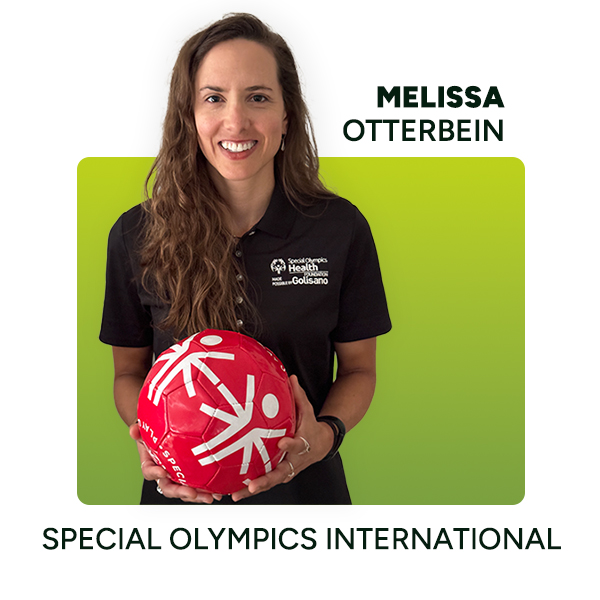
Melissa Otterbein of Special Olympics North America is an expert on public health and physical activity who will share her expertise on how to make your trails and events accessible and welcoming for all.
Proven Strategies for Corridor Acquisition
With over 30 years of conservation expertise, including at the Open Space Institute, Dene Hofheinz Lee will share her best practices for structuring and completing land acquisitions that have created numerous parks and open spaces across the Eastern United States, providing you with the tools and resources to do the same in your own community.
Engaging Local Foundations for Trail Success
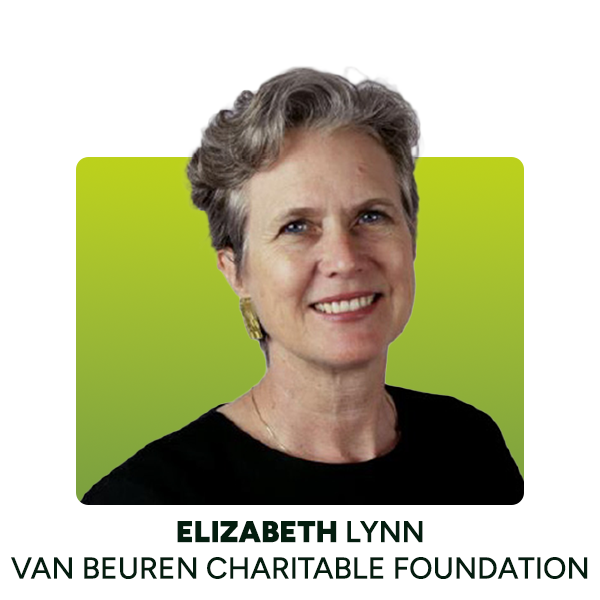
Led by Elizabeth Lynn, executive director of the van Beuren Charitable Foundation and veteran philanthropic leader, this session will explore how trail advocates can effectively engage local foundations to support trail development and community connectivity. With over 30 years of experience in grantmaking and community change, Elizabeth will share insights into what funders look for, how to align trail projects with foundation priorities, and how to build lasting relationships rooted in shared values. Participants will leave with practical strategies for approaching funders, crafting compelling cases for support, and positioning trails as powerful tools for place-based impact.
Engaging Black Women, Girls and Families in the Outdoors
Led by Ajoa Abrokwa, founder of She Is Focused, this session will explore how trail and community design can intentionally center the voices, experiences, and leadership of Black women, girls, and families. Ajoa will share strategies for building inclusive, healing-centered spaces through outreach, partnerships, and culturally responsive design.
Exploring Trail Towns and Tourism
Learn how to demonstrate the importance of trails for your community in this conversation with Cycle Forward‘s Amy Camp about how to build and maintain an effective community of support for your trail.
Federal Funding and Policy Advocacy Strategies
Join Former Congressman Tom Petri (R-WI), a Board member of RTC, and Scott Goldstein from Rails to Trails Conservancy’s Policy Team for an insightful discussion on the latest federal policy developments impacting trails and active transportation. Learn about recent federal funding claw backs, a new 5-year federal transportation law, a legislative threat to railbanking, and how to effectively engage Congress. Bring your questions and ideas for a collaborative conversation on shaping federal policy to support trail development.
State and Local Policy Strategies for Success
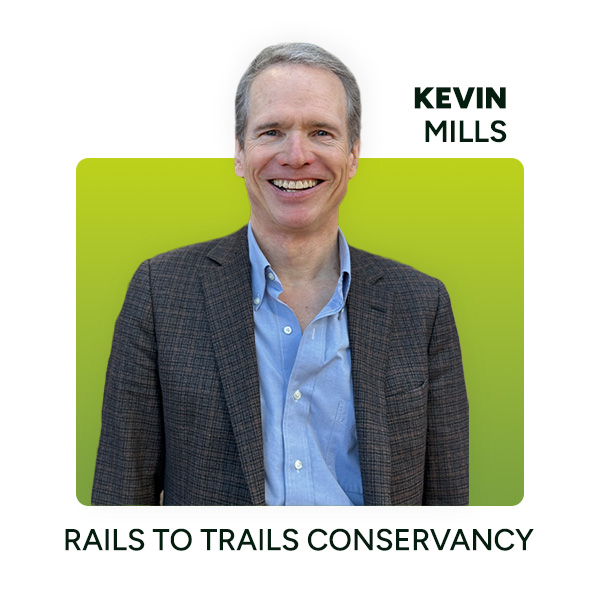
Join Kevin Mills from Rails to Trails Conservancy’s Policy Team for a collaborative discussion of
emerging state and local opportunities to align policies and public investments with the growing need for connected trail and active transportation networks. Compare notes on policy strategies that are and aren’t gaining traction and explore what works in building political will at all levels.
Legal Strategies for Trail Development
From navigating railbanking and corridor preservation to understanding easements, liability and landowner relations, explore actionable insights, real-world examples, and a clearer understanding of how to prevent or defend against legal challenges to trails, and how legal strategy can protect long-term access alongside Andrea Ferster, one of the nation’s foremost legal experts on rail-trails and railbanking. Please note: This session is for educational purposes only and does not constitute legal advice.
The Role of Trails in Downtown Revitalization
Matt Wagner Ph.D., is an expert on downtown revitalization at Main Street America who will discuss the powerful role of trails in revitalization efforts and provide you with tips and strategies to both demonstrate the economic benefits of trails and collaborate with your local business community.
Outdoor Recreation and Rural Prosperity
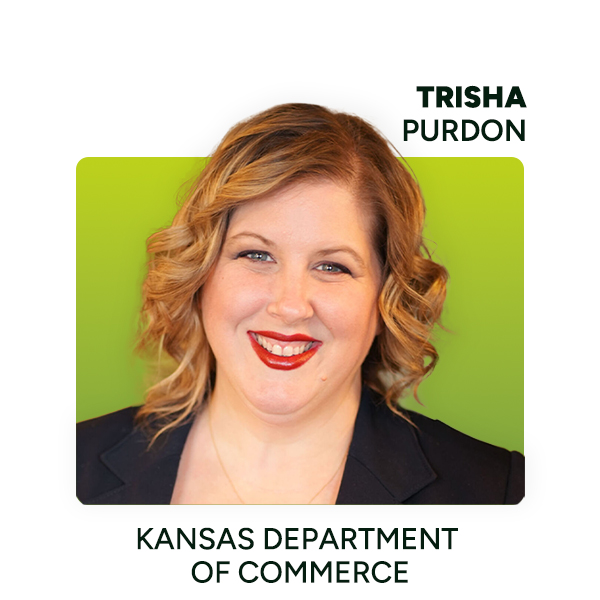
Join Trisha Purdon, Director of the Kansas Office of Rural Prosperity (ORP), for a conversation on how trail and trail network development can be a catalyst for rural revitalization. Explore how ORP works with communities to identify policy priorities, remove barriers to growth, and promote successful rural initiatives—many of which include outdoor recreation and trail infrastructure.
Assessing Trail Growth with Evaluation Metrics
Join Jim Sallis, Ph.D. (UCSD) and Laura Payne, Ph.D. (UIUC), two experts on evaluation metrics, for a conversation on how to measure success and evaluate progress on your trail network that you can leverage for funding proposals and building connections with leaders from your local council to congressional representatives.
Marketing Strategies to Maximize Trail Networks
How can trail networks, which are essential local assets, be maximized as regional destinations? How can those who love these trails be transformed into passionate advocates? Join Outright, the team behind Rails to Trails Conservancy’s brand strategy, to explore marketing approaches that connect with outdoor enthusiasts, maximize the potential of these networks and build a community of champions. Learn how targeted campaigns, creative storytelling, and smart advertising can cut through noise, amplify awareness and connect (the right) people to place.
Signage and Branding to Unite Your Trail System
If you’ve ever wondered how to build your trail network’s brand as a cohesive, connected system, this conversation with Guide Studio’s Cathy Fromet and Erica Deutsch is for you—hear how they worked with partners across the Industrial Heartland Trails network to develop a brand the unify communities across four states.
Demonstrating Demand With Trail Counts & Data
Join Eco-Counter’s Daniel Legere to hear how trail count and analytics technology can move your trail network development forward from demonstrating demand to supporting your funding applications.
Trail Network Planning and Design
Trail and active transportation planning experts David Shipps, AICP and Katie Sieb, AICP will share the knowledge and expertise of Toole Design Group to learn how to keep your planning efforts moving forward through a variety of challenges, from community engagement to design and construction.
Working with Railroads on Rail-Trail Conversions
Hear from Damien D’Anna, the Director of Real Estate, Sales and Leasing at CSX Corporation for insights on how this Class I Railroad is building partnerships and collaborating with trail sponsors and government entities to encourage rails to trails developments that spur economic development.
Mobile Tours
Legacy to Livability: Trail-Driven Waterfront Revitalization in Cleveland
From its roots as an industrial powerhouse to its emergence as a 21st-century city, Cleveland is an iconic American city with a remarkable story. Take a deep dive into a series of trail projects along the banks of the Cuyahoga River and the Lake Erie waterfront, tracing more than a century of the city’s history through multiple transportation eras. Explore how Cleveland has created an impressive, connected trail system with immense regional impact along the former path of canals and amongst railroads and highways. Learn how a coalition of regional partners came together to build the momentum needed to secure transformative Federal funding and forge public-private partnerships—resulting in world-class trails and open spaces just steps from downtown.
Cleveland Foundation Centennial Lake Link Trail walk: 0.5 – 1 mile on paved trail; minimal elevation change
3 AICP CM credits available.
Restoring Access, Building Resilience: The Euclid Lakefront Story
On the banks of Lake Erie, the suburban community of Euclid has a long history of limited public access to its waterfront. Like many other communities across the country, private property development was long prioritized along the lakefront, limiting use of the lake and access for trails and recreation. However, a receding shoreline and coastal erosion have presented opportunities to restore public access to one of the region’s most valuable assets. The Euclid example informs broader county-wide lakefront planning and serves as inspiration for resilience-based equity planning across the Great Lakes region. Creative funding strategies, including public-private partnerships, tax increment financing, and grant leverage, were key to making this transformation possible. In this mobile workshop, we’ll hear from the local leaders who found innovative ways to build environmental resilience and create trail connectivity for generations to come.
Cleveland Lakefront Bikeway walk: 1.1 mile on paved trail; minimal elevation change
Euclid Creek Reservation All Purpose Trail walk: 1 mile on paved trail; minimal elevation change
3 AICP CM credits available.
Leveraging Trail Connectivity for Quality of Life in Rural and Suburban America
We’ve all heard the myth that “trails, walking and biking are just for people in cities”. Yet small towns and rural communities that invest in trail infrastructure are thriving. This workshop will highlight both the Village of Orange and the City of Solon in Cleveland’s outer ring suburbs.
In Orange, we’ll explore their innovative approach to providing walking and biking infrastructure through an enhanced sidewalk system with local leaders and Cleveland MetroParks. Along the route from Orange to Solon, you will see an in-progress rail-trail development connecting communities. Solon’s Mayor Eddy Kraus will join us to show how regional partnerships between communities are driving trail network connectivity. Alongside park district staff and land acquisition consultants, these local leaders will tell the story of how these more rural communities are centering trails, walking and biking as key to attracting residents and businesses, resulting in strong local economies and transportation choice.
Solon to Chagrin Falls Trail walk: 1.5 miles on paved trail; minimal elevation change
3 AICP CM credits available.
Cohorts, Connections and Explorations
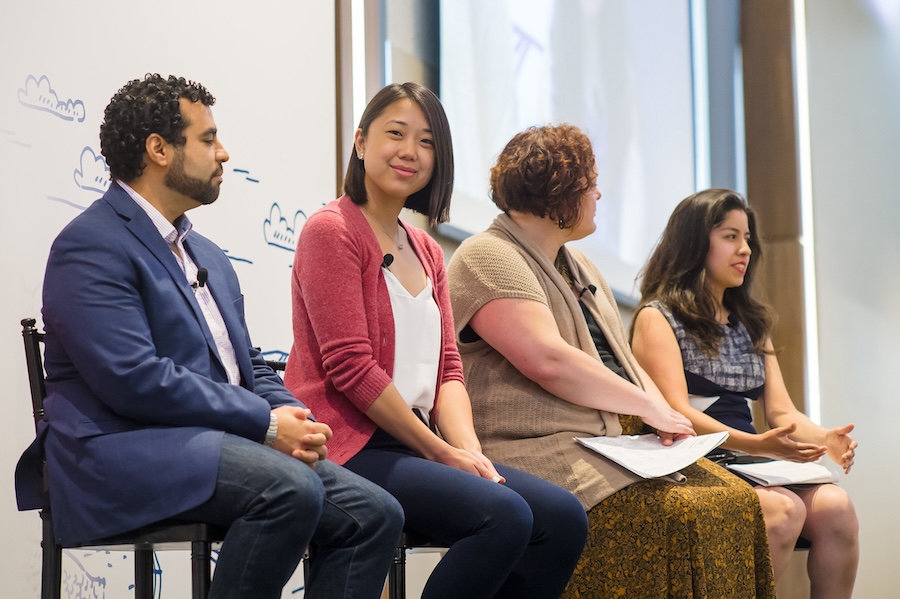
At the Summit, we’ll learn together, we’ll challenge each other, and we’ll have fun making new friends. The Summit is designed to maximize connections, bringing participants together in cohorts grouped by rural, suburban and urban geographies so that people can create relationships and tackle comparable challenges with fresh perspectives from across the country. Time is set aside for cohort meetups and networking at evening receptions. Plus, at the TrailNation Pitch Fest, you’ll get a chance to learn how active transportation projects from across the country are positioning their projects for funding. And we won’t miss our chance to get out on the trail, teaming up with Cuyahoga Greenways, our host trail network in Cleveland, to get outside and explore the innovation driving regional trail development.
Registration Closed
Registration for the TrailNation Summit closed on Oct. 10.
Full price registration for the TrailNation Summit is $475* and open through Oct. 10. Don’t miss your chance to be part of this event that will bring together hundreds of regional leaders, planners, and advocates who are working to build a future where trail networks connect people and places across the country.
Registration costs unlock full access to the Summit:
- Mobile workshops, masterclass sessions, plenary sessions
- Networking and time to build connections within tailored peer-learning cohorts
- Breakfast and lunch daily
- Two evening receptions
- Up to 13 AICP CM credits (for eligible Summit participants)!
*Processing fees will be added to the total cost at checkout.
If you have questions about the TrailNation Summit or the TrailNation Collaborative, view the Summit FAQ.
For information about ways you can sponsor the TrailNation Summit, reach out to Danielle Casavant, Senior Major Gifts Officer, at danielle@railstotrails.org.
